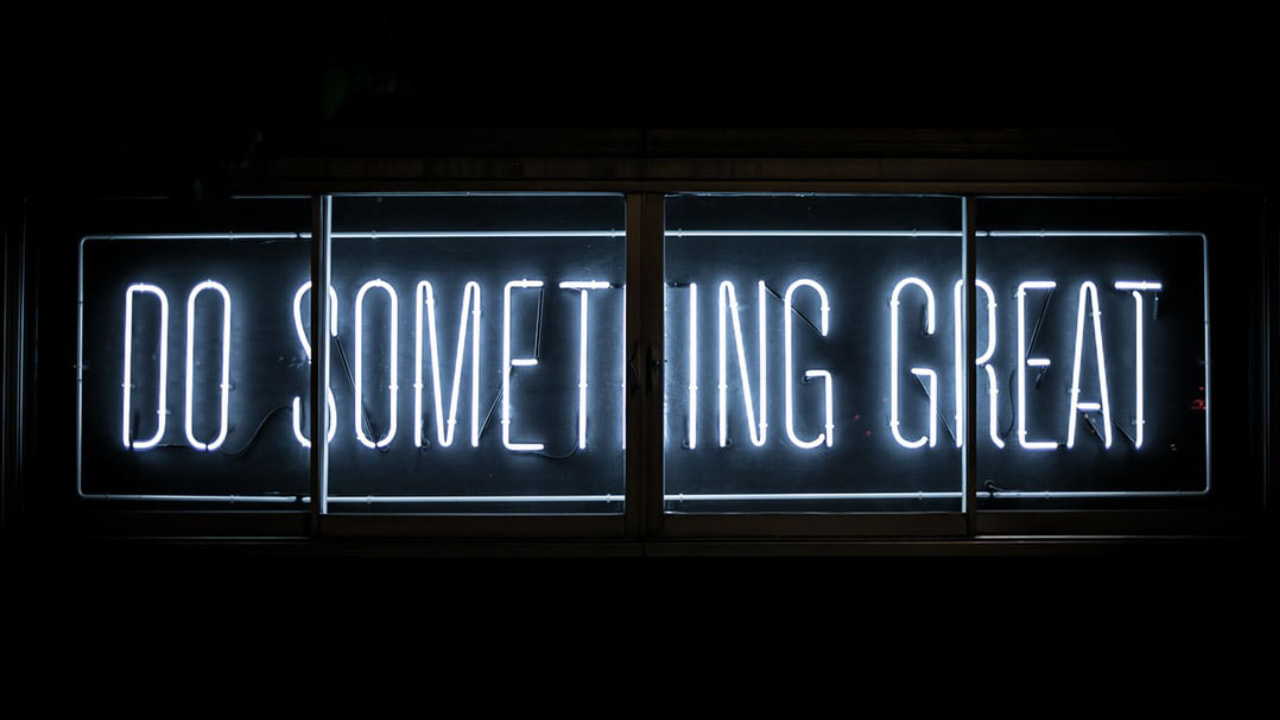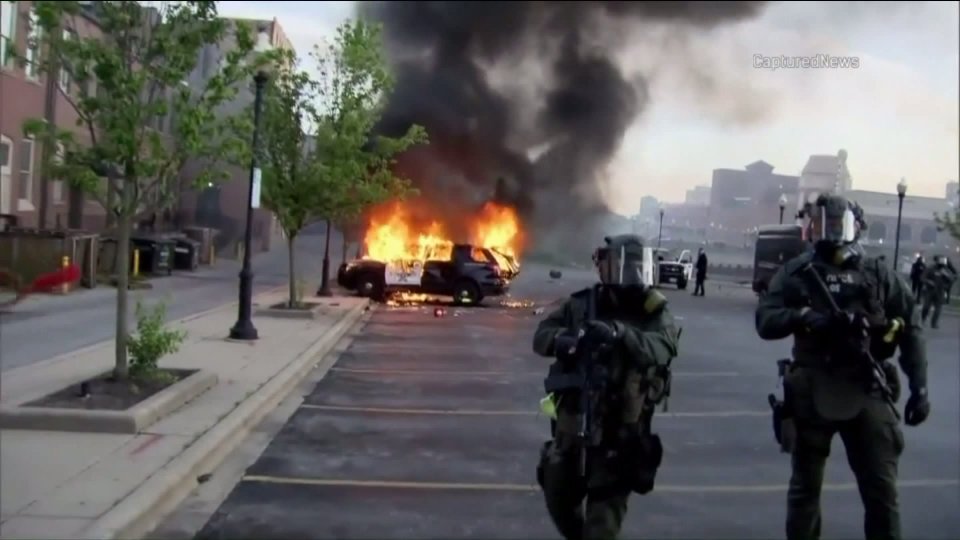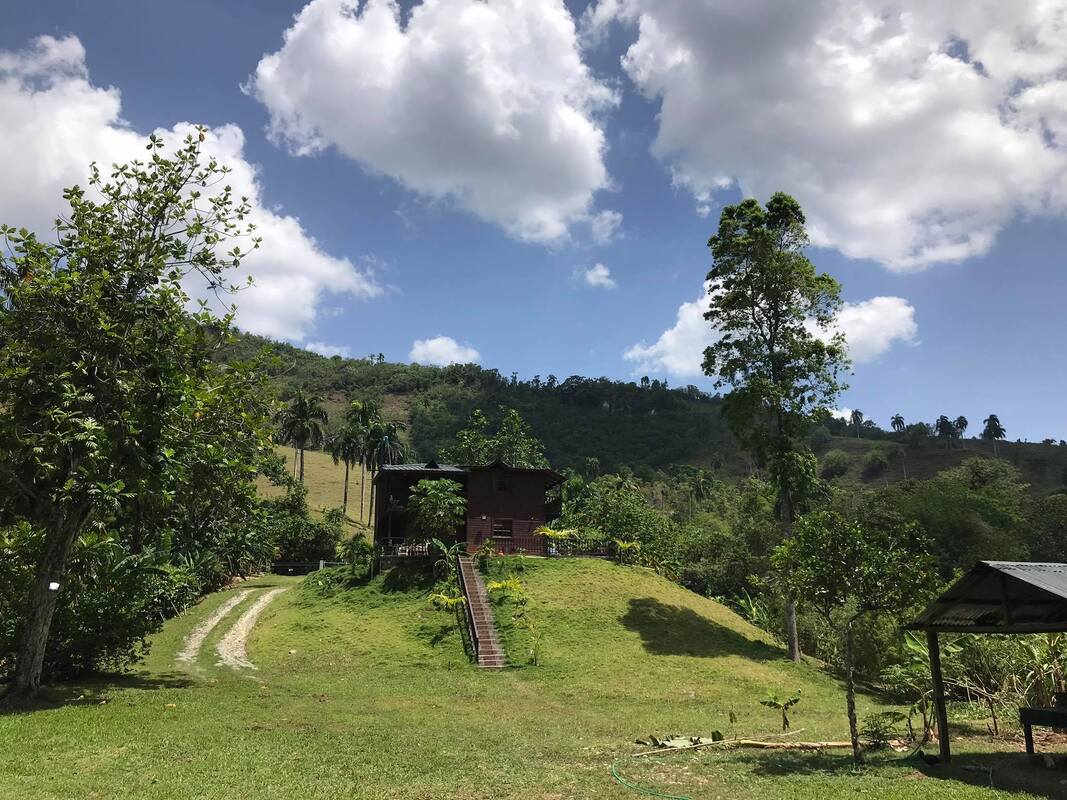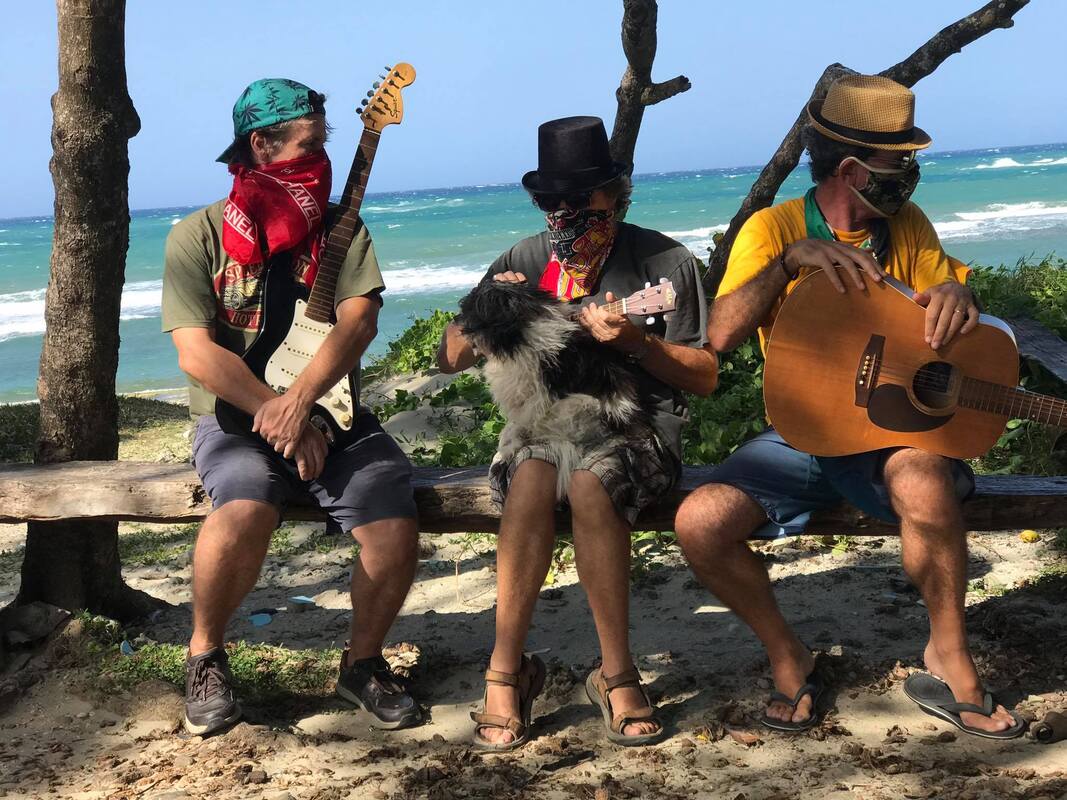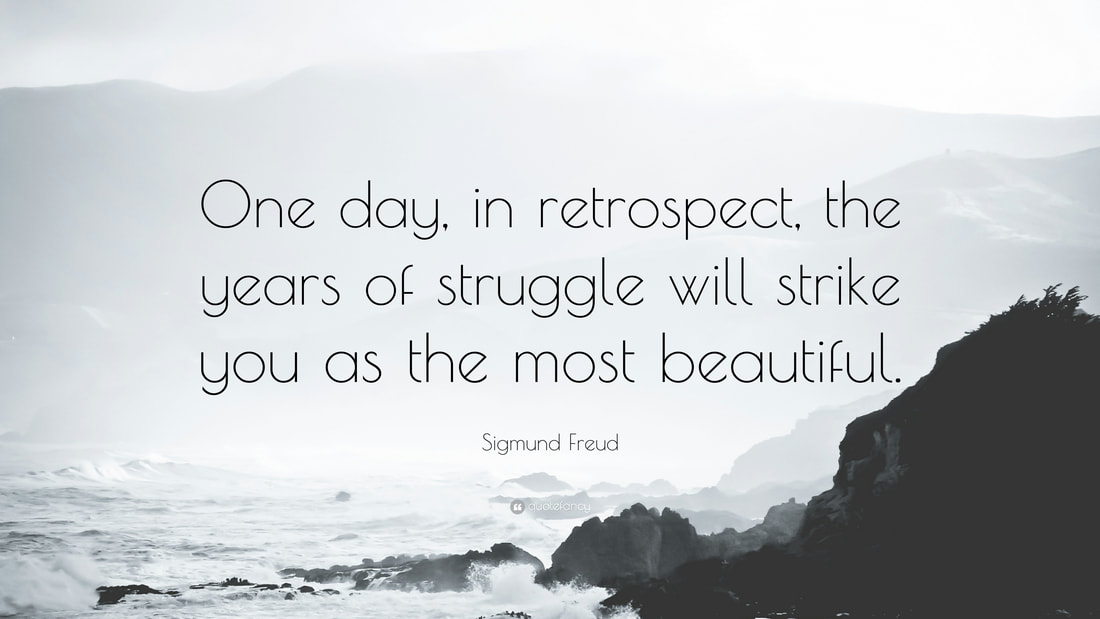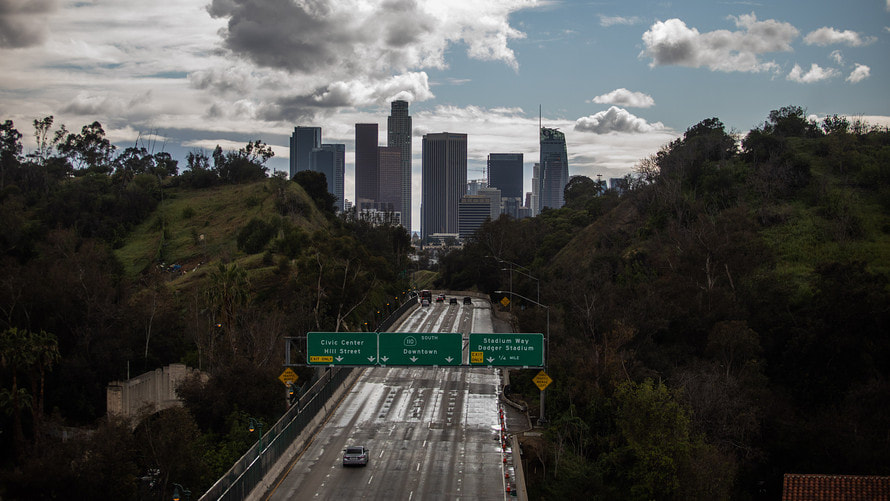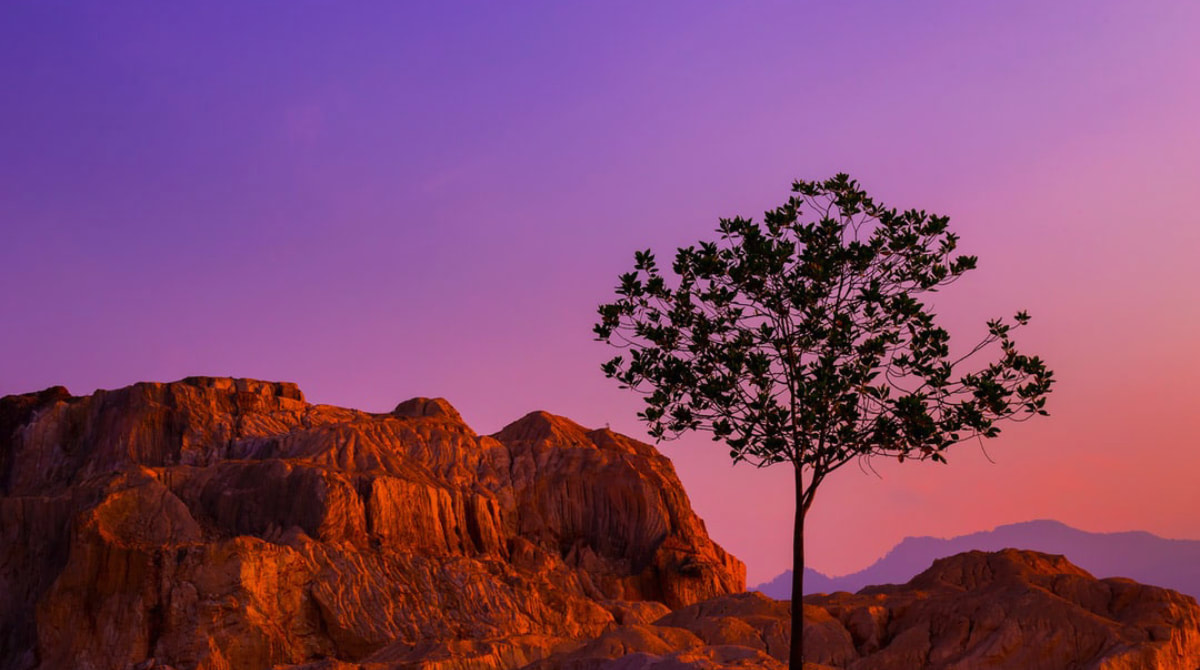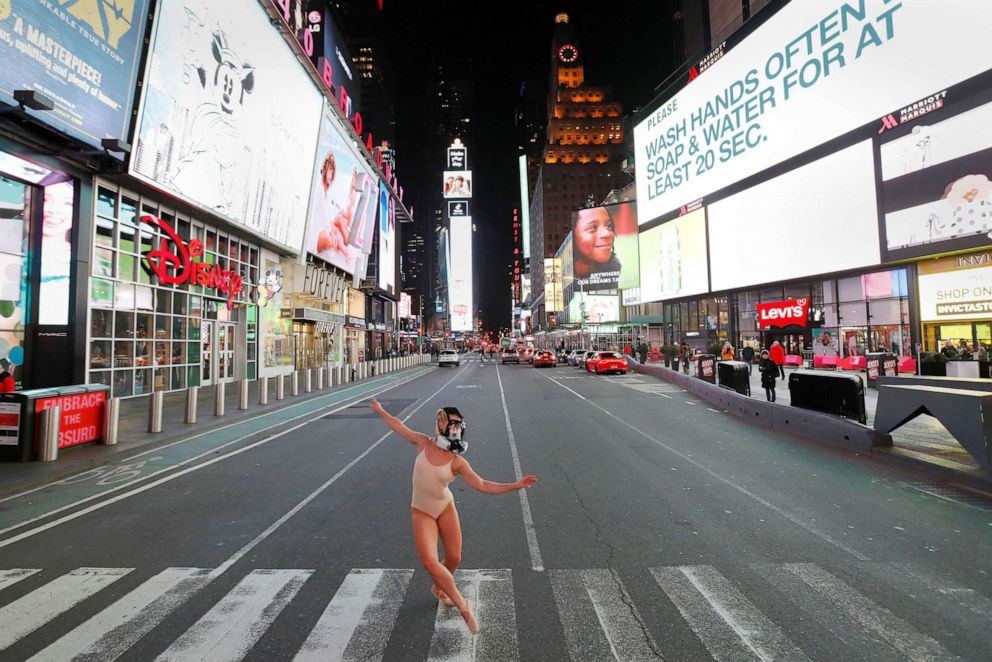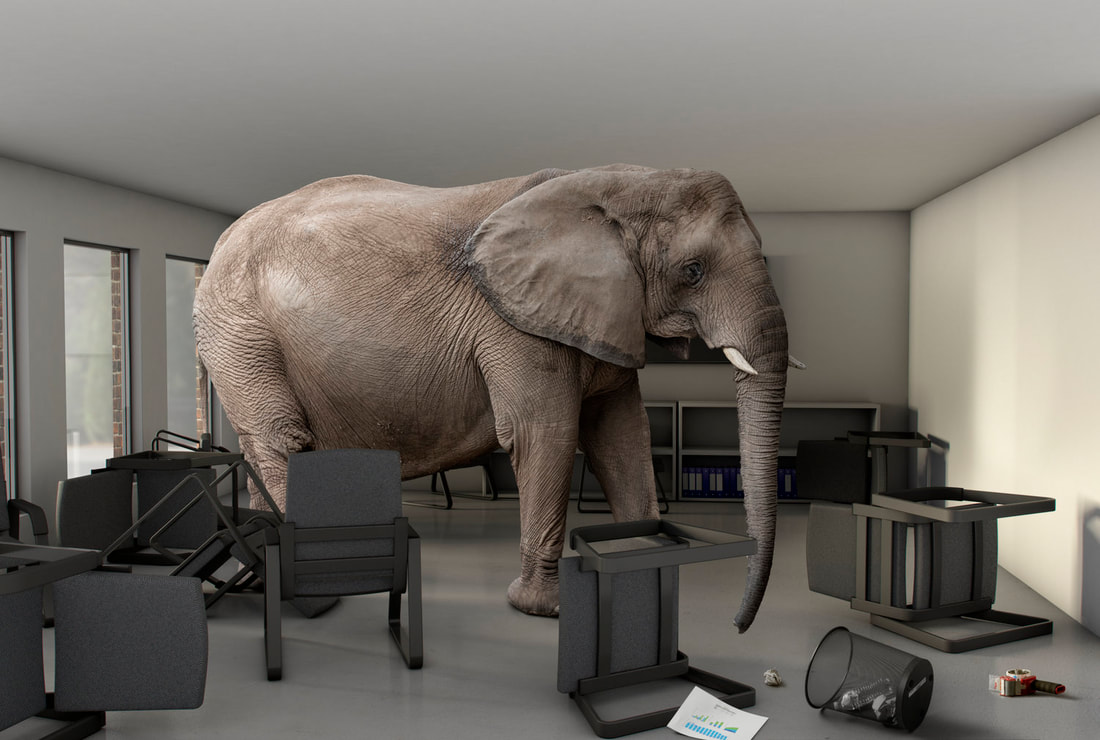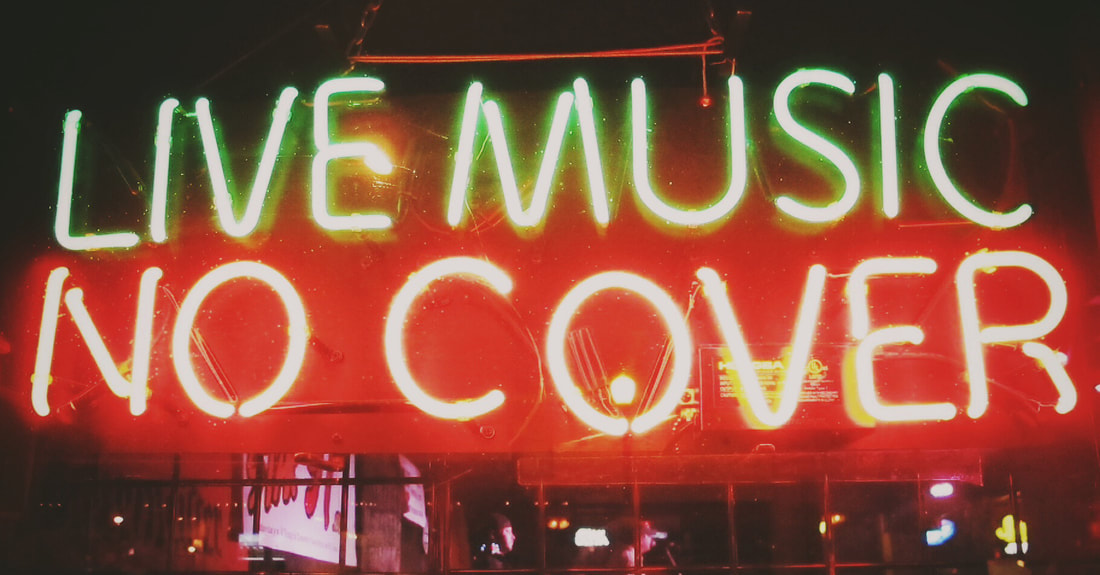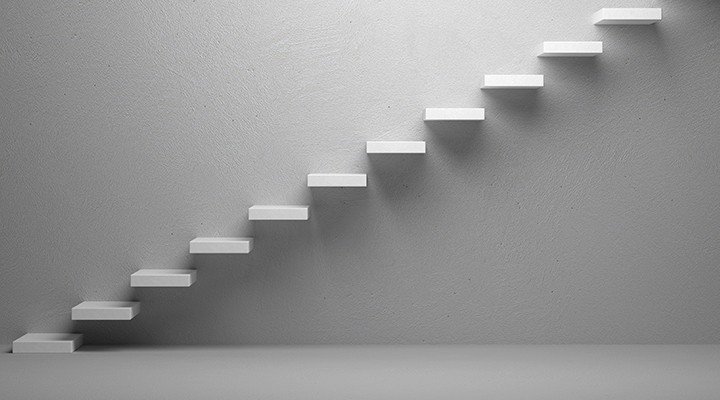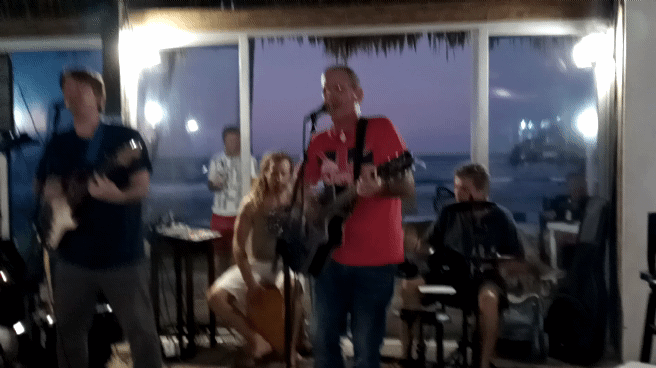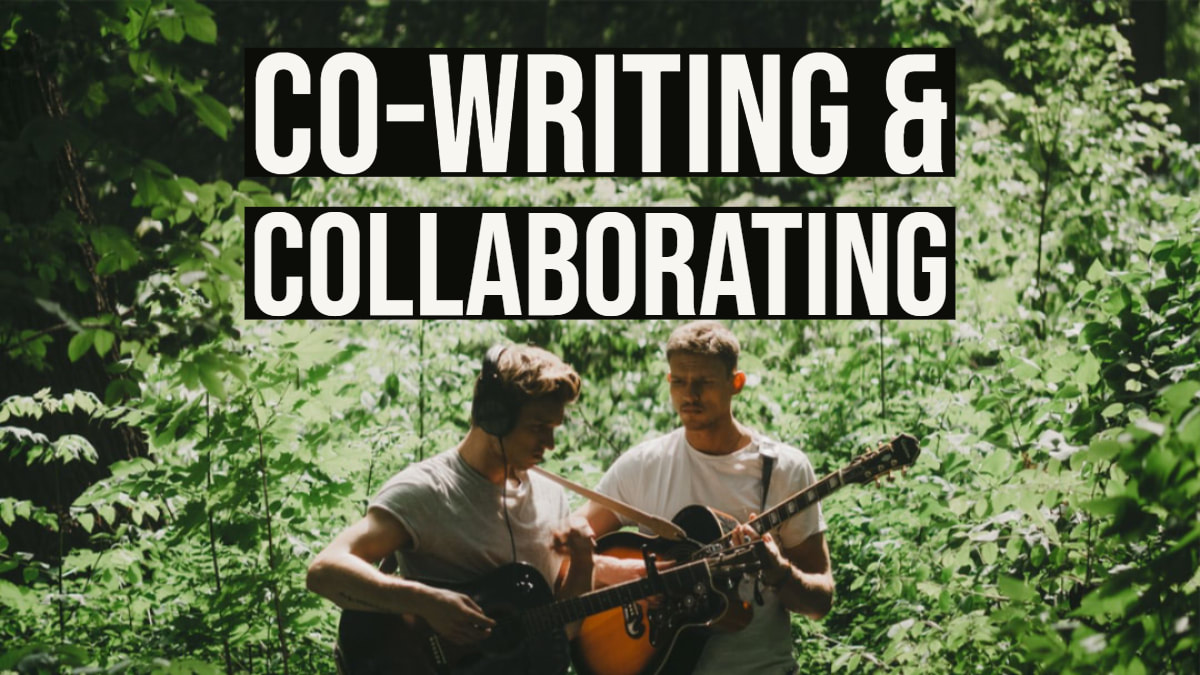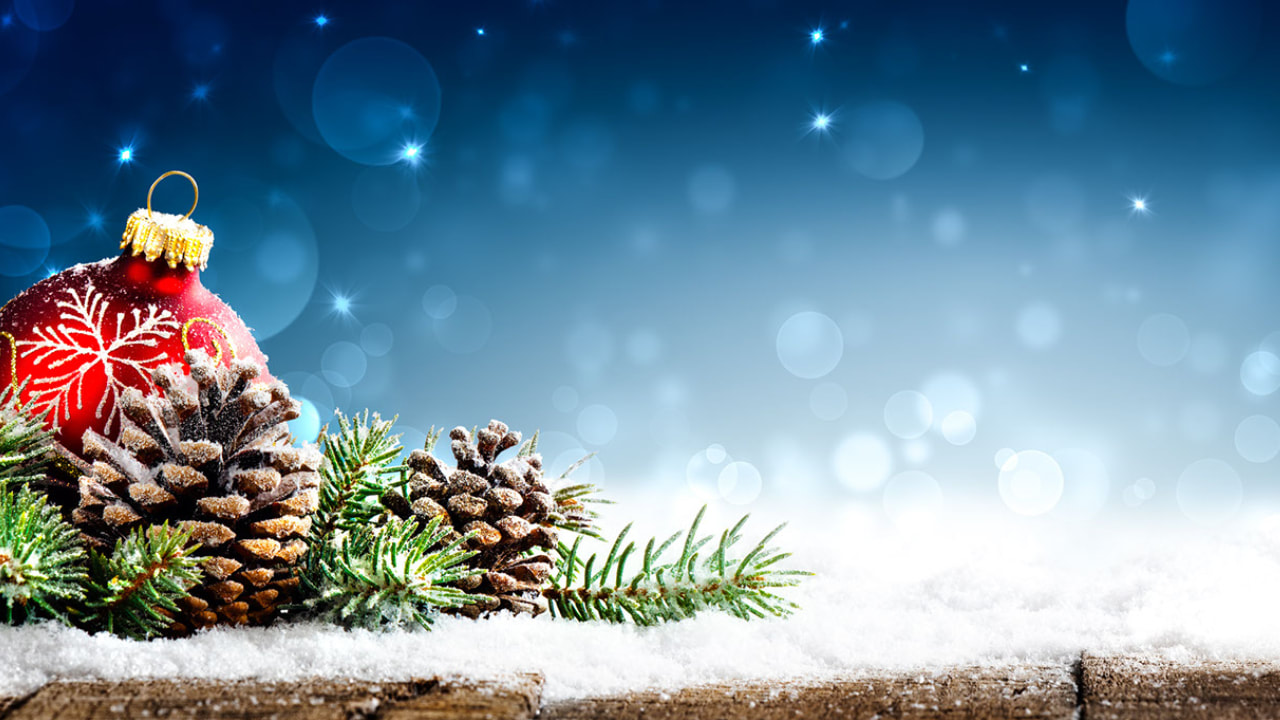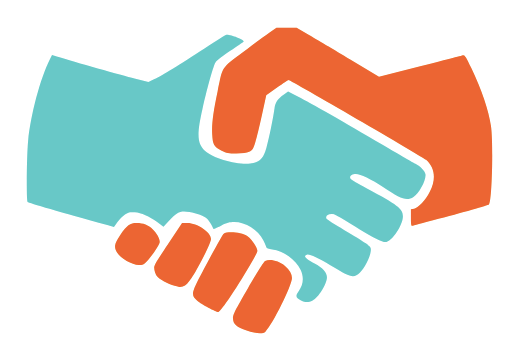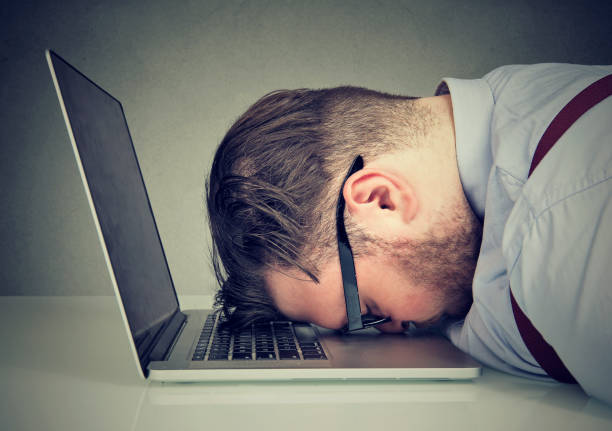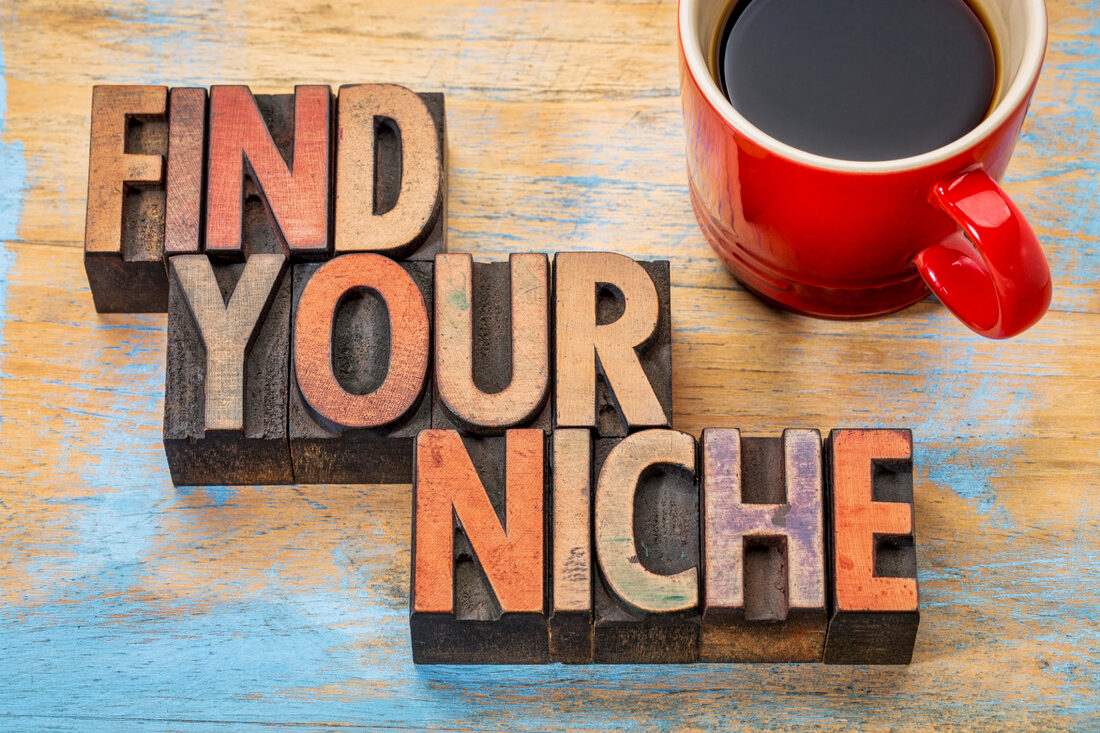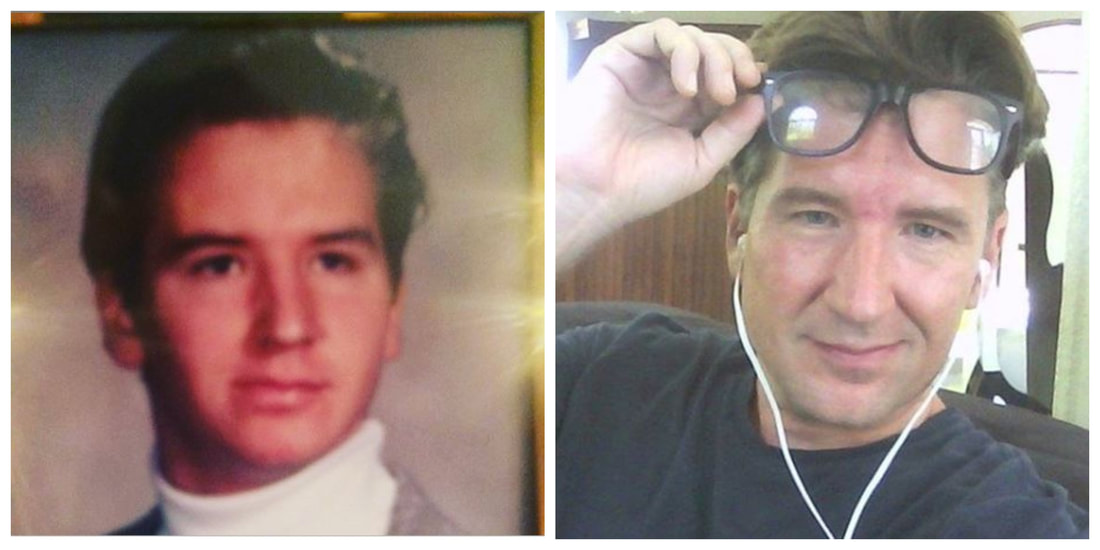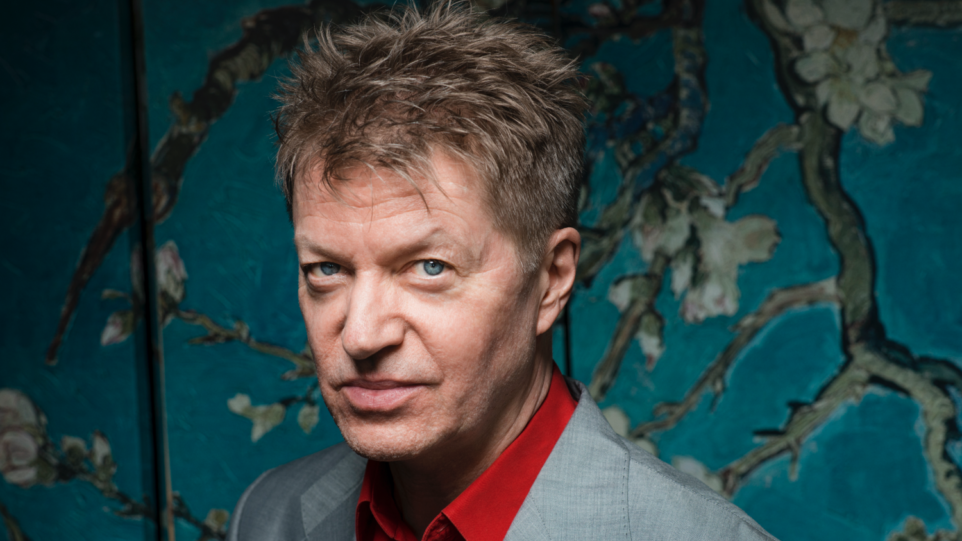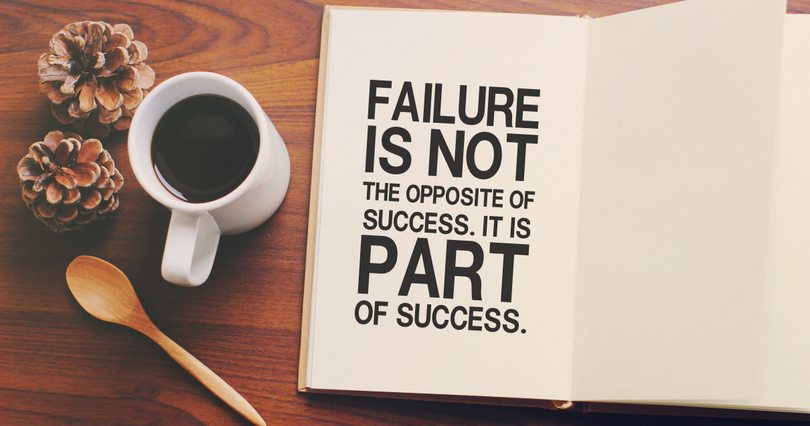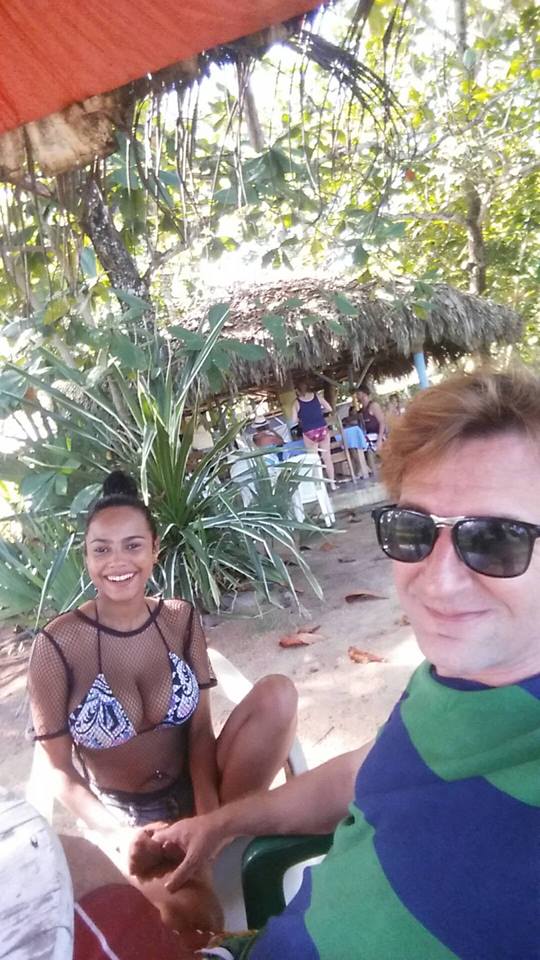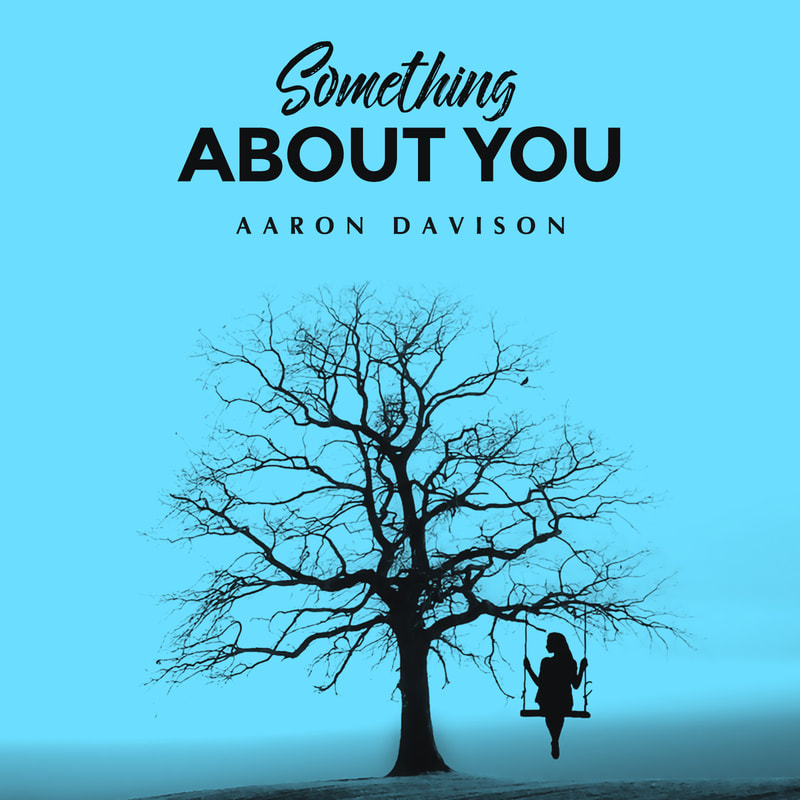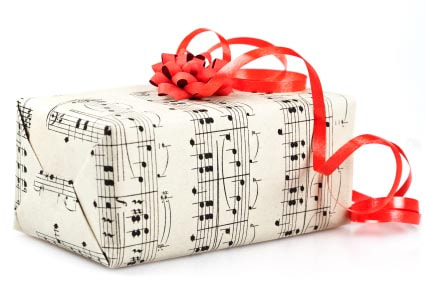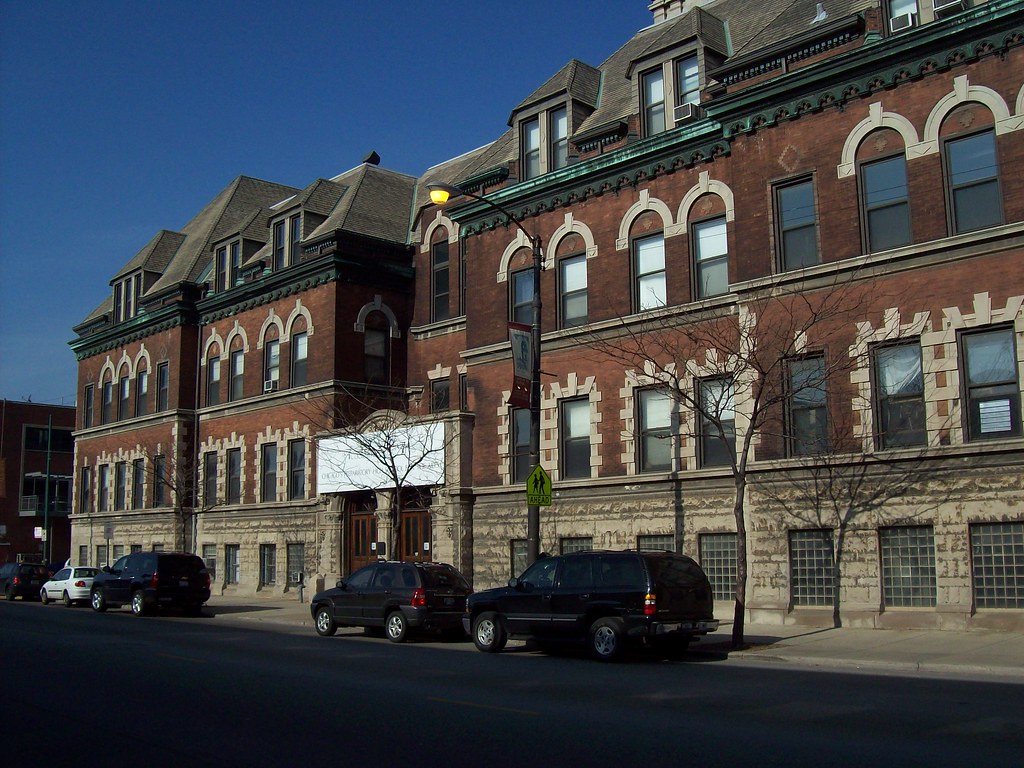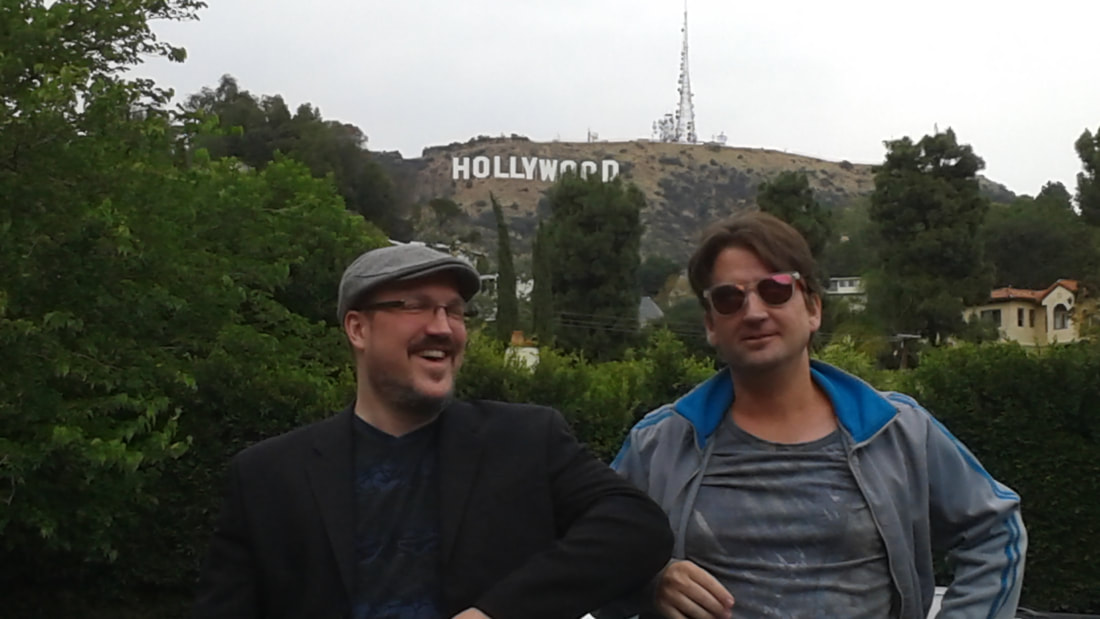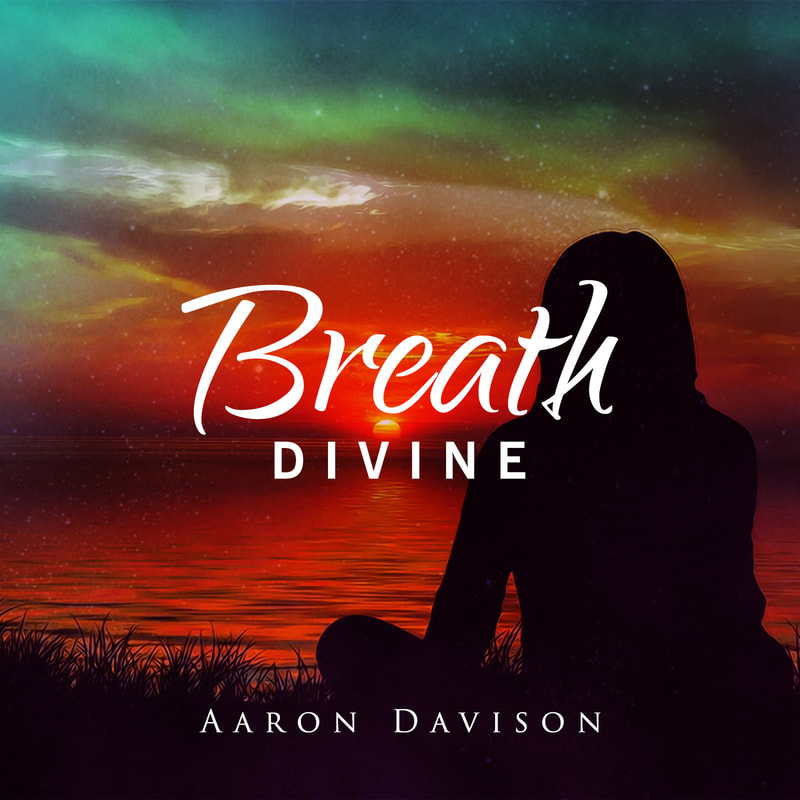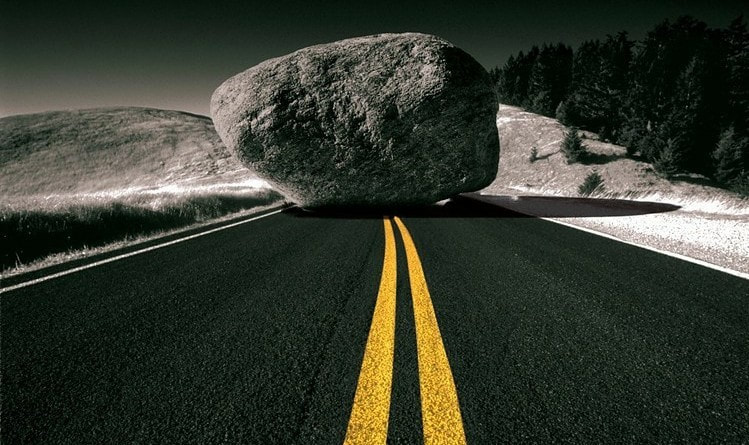|
I was playing music in the Caribbean when the Covid situation took a turn for the worse in the USA. I had planned on heading back to Chicago in late March to begin a new music project with a friend of mine. My plans were de-railed when just two days before my scheduled flight back to the states, the borders in the Dominican Republic, where I was staying at the time, were abruptly closed, with no flights allowed in or out, due to the Covid-19 pandemic. After a few weeks of uncertainty and several cancelled flights back to the states, I realized this wasn’t a situation that was going to quickly resolve itself. I was essentially trapped in the Caribbean for the time being and would likely be stuck for several months. So, instead of flying to Chicago to begin working on our project together, my friend MJ and I did the next best thing, we started collaborating remotely. The last few months have been, ironically, some of the most productive months for me musically in years. In part due to being stuck indoors for much of the last few months due to the pandemic, and also in part due to the fact that in many ways the pandemic was a huge wake up call and reminder, that you never know just how quickly life can change and throw you a giant curveball. For me, the pandemic and lockdown has been a reminder to pursue the things important to me while I still have time. Things like music. In this post I thought I’d break down my process for collaborating remotely over the last few months. Even in “normal” times, there are situations where you’re simply not able to be in the same space, at the same time, with people you’re collaborating with. I’ve collaborated remotely for years with my producer Gary Gray, as well as a variety of different vocalists, and we’ve had a lot of success finishing songs this way. This time the collaboration was different, in that I was collaborating with a musician friend of mine, during the beginning stages of writing and arranging, all the way through to the final production. After a month or so of collaborating this way, we refined our system of collaboration down to a pretty tightly run machine and we’re now averaging creating a new song every week to ten days. Our goal has been to get songs up to professional level demos which we can release on Youtube to grow my Youtube Channel, which I’ve recently monetized, and also potentially go on to create full blown, licensing ready mixes of the songs that get the best feedback and that we feel have the most licensing potential. Here’s my remote collaboration routine:
Since the music is primarily for my own Youtube channel, the only gatekeeper I have is myself. However, for songs that my producer Gary and I feel have strong licensing potential, I’ll be sending Gary the stems to finish up and do a final mix. This adds an additional week or so to the above process. For me, one of the biggest take-aways from the last few months, is that there are simply no excuses. If you want to make music, regardless of where you are in the world, you can find a way to make it happen. When the lockdown and airport closings happened, my friend MJ was really bummed because collaborating remotely isn’t the same as collaborating in person. He kept saying it would be so much cooler if I was there. Of course, collaborating remotely isn’t the same as being in the same room, but it’s still a completely viable way to collaborate. The last few months have been as productive as any period we’ve had collaborating before, in person. In fact, in many ways the last few months has been more productive. I’ve definitely been more prolific than usual. With the technology and tools we have at our disposal in 2020, you can be almost anywhere in the world and be collaborating with musicians almost anywhere in the world. Just because you don’t live in a major music city, doesn’t mean you don’t have access to the same pool of talent. Use the tools you have at your disposal and make the most of whatever your situation is. Here’s the most recent track I collaborated on with my friend MJ, as well as a few musicians I met during my time in the Caribbean. This one is called “Lost In A Dream”. I also did the video editing for the video. We’ll be sending this one to producer Gary Gray for the final mixing and mastering, as we feel this one has strong licensing potential. Check it out and let me know what you think! Subscribe to my Youtube Channel here.
11 Comments
It took me a long time to develop a workflow and work routine that was consistent and that I could commit to on an ongoing basis. It takes a massive amount of momentum to see any sort of real, sustainable success in the music industry. For this reason, developing a workflow that fits into your overall life and that you can commit to on an ongoing basis, is one of the most important parts of realizing success in music licensing and the music business. I used to have a sort of two steps forward, one step back approach to making music. I would work really hard for a few months and make a little bit of progress and then inevitably start feeling burnt out and take a step back to rest and regroup. The first few years of my music licensing career I had very sporadic success as a result. I’d license several songs and then there were often long stretches where not much was happening. I’d then frantically go back to the drawing board, so to speak, and throw myself into the process of music making again, see some renewed success, slow down and take a break again and repeat the entire cycle over. This went on for several years as I was also juggling the duties of several internet businesses and different projects. These days I have a much different and much more consistent approach to making music. It’s very simple and my workflow and creative process has become much more efficient and dialed in. I write and record one song a week and release one music video weekly. It’s still a lot of work, don’t get me wrong. I can easily spend 30 to 40 hours a week or more, mixing, rehearsing, writing and video editing. But it’s a schedule that I can commit to regularly without getting burnt out doing. I still have plenty of time to manage my other duties and I really enjoy the time I spend making music. And if takes me ten days to finish a track instead of seven, it’s not the end of the world. I simply aim for averaging a song a week. A lot of people ask me how many songs they should be aiming to record weekly and monthly, and like a lot of things related to music licensing, there are many variables. It depends on what kind of music you’re making, how efficient you are at writing and recording, what your goals are, etc. But really, the most important variable, is you. By that I mean, it comes down to what you can commit to, how skilled and motivated you are and so forth. I like the song a week model because, after a lot of trial and error, this is the schedule that feels right to me. My goal is to consistently make music and put it out into the world, without getting burnt out or stressed about it. There are enough stressful things in the world right now that the least thing I want music to be is a source of stress or frustration. Aim to setup your schedule and life in a way that you’re excited about and brings you more joy than stress. If making a living from music if your goal, you’re going to be doing it a long time, so make sure you’re creating a workflow that’s sustainable and enjoyable. If you’re pushing yourself to the point of burn out you’re not going to be able to sustain that. What is your workflow like? Do you have a set amount of songs you record each week or month? Have you given this issue much thought? One of the keys to success is consistency. Just keep showing up and putting in the work. There’s a lot that’s out of our control in the music business, but the one thing you we do control entirely, is our output. And like I’ve said before, more songs will generally lead to more licensing opportunities and more money. In my own experience, I've seen my licensing income go up significantly over the last several years as I've simply been writing and recording a lot more music. It's sort of a no brainer. More songs = more licensing opportunities. I’ve also been ramping up my efforts on Youtube ever since the pandemic started and have been releasing new music videos each week. Here’s my latest effort, a video for my song “Everything Is Going To Be Alright”, shot in the Caribbean during lockdown with my quarantine project, Bandits Of The Apocalypse. Check it out and be sure to subscribe to my Youtube Channel here.
As many of you know, I’ve worked with producer Gary Gray a lot over the last few years. When we collaborate, we have one singular mission in mind for the music we’re working on together, which is to optimize each track for licensing opportunities. We’ve racked up quite a few syncs the last few years and recently had our biggest ascap payday yet, for several dozen tv placements in 2019.
We recently completed and signed a publishing deal for a track that I feel is one of the strongest overall tracks we’ve done together. I thought I’d share what the collaboration process was like to give you an idea of how songs can evolve and go through a few different stages, until they are ultimately completed and ready to shop to licensing opportunities. Our latest track, Lost And Found, took several months to complete, from its inception to the final mix. We recently signed this one to my primary publisher in LA and I’m confident, as confident as one can be in this industry, that this track will get syncs going forward. We sent this one to our publisher and she responded right away, enthusiastically, that she would love to sign it. That’s always a good sign. As opposed to when you submit tracks and weeks or months go by and you ultimately never hear anything. Submitting music is sort of like going out on dates with prospective partners, if someone is really interested, they’ll let you know sooner or later. On the other hand, sometimes people just aren’t that into your tracks. I started writing this song last year and made a basic guitar/vocal demo that I sent to my friend and frequent collaborator, MJ. A few weeks later MJ and I got together in person and we spent about a week creating a full band demo and fleshing out all the parts. MJ came up with a great 2nd hook, the line “gonna turn this thing around”. (See below) After MJ and I finished our version of the track we sent our mix and the stems to Gary to start his process. Like I said, when Gary and I collaborate, our main goal is to create tracks that have the best chance of getting placements. Sometimes this could mean making changes to the track’s arrangement. Sometimes it could mean changing certain lyrics or re-writing tracks to make them more “universal” in terms of subject matter. Other times, like in the case of Lost And Found, it could mean doing a completely different version of the track with a different vocalist and even different instrumentation. I give Gary carte blanche to make whatever changes he feels necessary to optimize each track for licensing. At the time Gary and I finished this particular track, Gary and I received a playlist of the types of songs my publisher is most in need of for a variety of shows she pitches to. Gary used these tracks as reference material when it came to arranging and mixing my track, “Lost And Found”. Based on this playlist and the style of production these songs had, Gary ended up completely re-doing Lost and Found using a different vocalist and also re-doing the guitar parts in a different style. When I got the track back from Gary, I was a little surprised at first, because I didn’t realize he was making such drastic changes to the song. But, when I put my ego in check and just objectively listened to the song, I was blown away. Of all the tracks we’ve done together, this might be the one I’m most proud of and excited about. Gary’s mix and production sound so solid on this one that I would be really surprised if this one doesn’t get some great syncs. You can check out my demo version below I did with MJ, as well as Gary’s final version below. I’ll probably do another fully produced version with MJ at some point as there are elements of our version I really like, but I can’t deny how undeniably great Gary’s version is. Listen for yourself below!
Lost And Found Demo Version
Lost And Found Final Mix By Gary Gray, featuring Joseph De Natale
2020 is one of those years that will go down in the history books, for all the wrong reasons. A pandemic, a recession, record unemployment, mass protests and riots, lockdowns, curfews and mad hornets! Just when you think things can’t get any crazier, the world seems to somehow keep one-upping itself. At this point, if we had an alien invasion I don’t think I’d even bat an eye. I’m sort of half expecting one. As I’ve discussed in several different blogs and podcasts, I’ve been essentially trapped in the Caribbean the last few months, due to the airports here being shutdown in March. It looks like, if everything goes as planned, there will be flights available again in July. I feel relieved at least knowing there is a light at the end of the tunnel and I have a tentative date of when I’ll be able to leave. It’s reassuring, sort of. I say sort of because it’s clear that the USA I will return to is not the same USA I left, when I flew here in January. Chicago, where I’m from, has been particularly chaotic the last few days. Buildings have been burned. Police cars have been set on fire. Stores have been looted and vandalized. There have been multiple fatalities. Several of my friends have lost their jobs. I try not to spend too much time watching the news these days. I do my best to stay informed, but not overwhelmed by the state of the world. It’s a difficult balancing act. I spent last weekend in the mountains, in the middle of nowhere, on an island in the Caribbean, with my band and a few friends. It was my first trip since March outside of the small beach town I’ve been stuck in the last few months on lockdown. A few hours after we arrived, I received a text message from a friend in Chicago. “It’s crazy in Chicago! There are riots, buildings on fire, a curfew has been imposed. Check the news!” Here I am trying to get a small respite from the madness of the world in one of the most remote places imaginable and I still can’t escape the craziness. Of course, putting your head in the sand and ignoring the state of the world isn’t the answer. My friends and I spent several hours discussing everything that was unfolding. In the evening, we even wrote a song inspired by the protests and the death of George Floyd. One of the great things about being a songwriter, is that no matter how crazy the world gets, there’s always something to write about. In some ways, the crazier things get, the more there is to write about. Adversity and hardships force you to dig deeper and find strength that in many cases, you didn’t even know you have. Here’s what one of my favorite authors, Eckhart Tolle, has to say about adversity and what we’re all living through at the moment: “Adversity forces you to awaken to the deeper dimension of who you are. Why does adversity force you? Because life becomes almost unbearable when you live only on the surface, the surface of sense perceptions, and your conceptual mind.” The last few months has been, strangely, one of the most productive periods of my life. Once I realized I was likely going to be stuck here for at least a few months, I got into a really productive rhythm and have since written and recorded dozens of new songs, many of which have been inspired by everything going on in the world. I have, you could say, dug deeper and discovered a fortitude and strength I didn’t know I had. I’m working harder than ever to realize my goals in one of the craziest times we’ve ever known. Something about that feels comforting and right and to be honest, despite everything going on, I wake up excited every day to get to work. I can’t change the entire state of the world, but I can at least be in control of my little slice of reality. If history is any indication, what is happening in the world and everything unfolding will eventually come and go. Eventually the pandemic will come and go. Eventually the protests and rioting will stop. New challenges will arise. Those will also come and go. The sun will continue to set and rise. I don’t know how to change the world at large. I wish I did. I wish I could wave a magic wand and make all the injustice, inequality, anger, frustration, sickness, political corruption, sadness and rage come to an end. I wish I could. There’s so much I would change if I had that kind of power. All I can do is focus on what I can control. Things like how to be a better friend to my friends, how to be a better partner to my girlfriend, how to be a better son, how to be a better songwriter and musician, how to be a more compassionate and empathetic citizen of the world. These are the things that motivate me to keep going every day, in spite of and in many ways, because of all the craziness unfolding. Maybe, just maybe, if we all focused on making our little piece of the world we live in better, we could slowly change the world into a better place, one person and one day at a time. Check out my newest song inspired by the lockdown, Killing Time, performed with my Caribbean lockdown band, Bandits Of The Apocalypse. When all of this Covid stuff first started getting serious, there was a part of me that was fearful. It was the unknown element in all of this. I was in the Caribbean. I still am. The borders were abruptly closed. Then all the businesses, except grocery stores and pharmacies were closed. The little beach town I’m in almost overnight turned into a ghost town. The streets were mostly empty. A 5 PM curfew was imposed. There was tension in the air that was palpable. Everything felt strange and surreal. After a couple weeks or so, once I realized the grocery stores would not run out of food, the internet and power would continue to work and the sun would continue to set and rise, I settled into a new routine. The fear I initially felt gradually shifted to something unexpected... joy. I found myself surprisingly really enjoying my new routine and the surreal nature of the experience. My mood brightened. I started taking long daily walks alone on the beach to contemplate everything happening. This is something I did frequently before quarantine, but these walks felt different. Everything felt heightened. In some weird way I’ve felt more alive throughout all this. Whatever was happening with the pandemic was so intense, it was as if it woke me up from a slumber and now I was really paying attention. To be clear, I wasn’t enjoying the fact that there was a pandemic or that I was effectively trapped in a developing country. I was enjoying my reaction to it. It’s sort of hard to put into words, but I just felt strangely more awake and in tune with everything around me. As if the situation shifted my perspective slightly, just enough to let me see things in a new light. I realized much of life is completely out of my control and although that’s kind of scary on one hand, in a way it’s also completely liberating and humbling. If it’s out of my control, why waste my energy worrying about it? Of course, life has always been largely out of our control, but when something like this comes so unexpectedly, you realize just how little we do control individually and just how quickly it can all change. I guess you could say quarantine has taught me to surrender. To let go of worrying about the parts of life outside of my control, which it turns out, is most of life. But, of course, there are things in my control and even in a crazy situation like this you can find normalcy and joy. I’ve found having a routine helps, especially during a time like this. Here’s what my quarantine schedule the last couple months has looked like: 1)Wake up around 8 am 2)Make coffee and do morning meditation 3) 9 am play guitar and work on songs 4) 10 am – work on business projects, courses, etc 5) 2 pm – break for lunch with girlfriend 6) 3 pm - Work for an hour 7) 4 pm – go to beach for a walk and swim 8) Return by 5 pm curfew 9) 6 PM – jam with new quarantine band, “Bandits Of The Apocalypse” 10) 8 pm – finish jam and edit / render video from nightly jam session 11) 9 pm – answer any unanswered emails, work on music, etc 12) 10 pm – chill with girlfriend, watch Netflix, etc 13) Sleep by 1 AM I found myself, after a few weeks of this routine, feeling incredibly relaxed about things. I adapted to the situation and I’ve developed a new, quarantine rhythm. I started focusing much more on taking life one day at a time and not trying to figure things out too far in advance. Once the initial fear and uncertainty subsided, I realized that although there were many restrictions placed on me that were new and there was a lot up in the air, I was still free to pursue most of the things I wanted to pursue. And in fact, in many ways, it has never been a better time to pursue these things. After all, I have far fewer distractions than I normally do and a lot more forced time inside to get things done. It turns out most of my big life goals are best pursued indoors; music, songwriting, marketing, business, etc. I’ve grown much closer to my two band-mates who live in the same building I do and who I’ve seen nightly throughout all of this. We’ve had so many strange and interesting conversations ranging from our shared concern about the pandemic to expressing our gratitude of being able to share such an interesting, surreal experience together. We’ve also spent countless hours jamming, recording and making Youtube videos. These our experiences that I’m sure when I’m older I’ll remember much more clearly than the months and years that preceded all this. I’ve seen so many people step up and go out of their way to help others. I’ve helped as many as I’ve been able to and people have come forward to help me in unexpected and beautiful ways. It seems like humans are often at their best in times of crisis. It shocks us all out of our collective slumber and forces us into action. I think most humans are good people, we just tend to be so busy during “normal” times that we forget to take a break and check in with each other. As we move forward, a lot of questions remain. I sometimes catch myself wondering about things in the future. When will the airports here re-open (no official date yet but lots of speculation)? What will the long-term impact on our economy and my business be? What will the music business look like a year from now? Two years from now and going forward? When will live music resume? What will life be like after all this is over? Will there be a “new normal”? Will there be a mandatory vaccine? Will we end up losing more of our freedoms and liberties? Am I going to be micro-chipped?? There are so many questions I don’t have the answer to and occasionally I catch myself thinking about and pondering these things. These are the only moments throughout all this when I feel stressed. Once I realize there is a lot I simply don’t know or have answers to yet, I remind myself to focus on the here and now and the fear and stress subside. What can I do today? What do I want to do today? What inspires me today? When I focus my energy on these questions I quickly get inspired again. I realize that I, nor anyone else, knows exactly how all this will unfold and play out and that it makes little sense to use my time worrying about these things. So for now, I focus on what I can control. This is always where our true power resides. I’m reminded of one of my favorite quotes by Viktor Frankl in his book “Man’s Search For Meaning”, in which he chronicled his experience as a prisoner in Nazi concentration camps during World War 2. An experience far more horrifying than being stuck at home watching Netflix on the beach. The quote is: “Everything can be taken from a man but one thing: the last of the human freedoms—to choose one’s attitude in any given set of circumstances, to choose one’s own way.” ― Viktor E. Frankl, Man's Search for Meaning Check out my latest original song that takes a lighthearted look at the lockdown, "Bottle Full Of Wine", I recorded with my quarantine band, Bandits Of The Apocalypse. What if for the next three months or six months or however long this thing lasts instead of focusing on the pandemic and the virus and all the bad news that seems to be all around us, what if, instead, you decided to use this period of time to make massive leaps forward with your music and with your life? What if, instead of worrying about all the things out of your control, you decided to take ownership of what you do control and take advantage of this unique time in your life and the unique moment in history you’re experiencing? Before I go further, I want to preface all of this by expressing my sincere condolences to those of you who have been impacted by this situation. To those of you who know someone who has fallen ill or succumbed to Covid-19, my heart goes out to you. To those of you who have lost revenue because of this my heart also goes out to you. There is no doubt a tragic element to all of this and this post in no way is meant to do downplay that reality. With that said, as in all “negative” situations, on an individual level there is an opportunity for growth and the chance to take a quantum leap forward in a number of areas in your life. Over the last few weeks, I’ve observed myself vacillating between being very concerned about the future and questioning how all of this is going to impact my business, the music I make and my personal life, to feeling a sense of excitement about ways I can take advantage of this very unique, surreal moment in time. Since this whole thing started, I’ve found myself instinctively drawn more and more to music and making music as a way to mitigate the stress I’m feeling and also create a sense of focus and productivity during this period. I’ve been, ironically, writing and performing much more music than usual during these times. The more the days stretch on and the longer this situation lasts, I find myself less concerned about the future and more focused on how to make the most out of the here and now, one day at a time. It occurred to me, as I was doing my morning meditation a few days ago, that there is the possibility, at least on an individual level, to turn this into not only a “positive” situation, but perhaps even a period of time, that when looked back on retrospectively, could be one of the greatest periods of your life. Sigmund Freud once said, in one of my favorite quotes, “One day, in retrospect, the years of struggle will strike you as the most beautiful”. I love this quote, because it gets at what I think we’re all seeking in our lives, which is a sense of meaning and purpose. What Freud meant, was that when we sit back and do nothing, and don’t engage in challenging situations, we don’t grow. Often times, when we’re going through difficult periods, we don’t realize how important they were to our own growth and progress and how "beautiful" they were, until we look back, in hindsight. As I find myself frantically writing music and recording and posting performance daily videos with my lockdown/quarantine side project, The Bandits Of The Apocalypse, I sometimes catch myself feeling even more excited than I did before all this started. Again, don’t get me wrong, I would prefer that none of this ever happened. I miss being able to travel freely, go out to eat and socialize with my friends and I look forward to, hopefully, being able to do those things in the near future. But I also sense a unique opportunity in all of this. This is one of those moments in our lives that we will all look back on when we’re older and recall exactly how we felt, what we were doing and how we spent our time during this unique moment in history. The question is, years from now, looking back on this strange period of time, will you look back with a sense of fondness or with a sense of regret? Will you choose to seize this moment and use your time in a way that is meaningful and important to you? Or will you choose to squander this period of time and give in to fear, doubt and inaction? What you do with this period of time is of course completely up to you. If you’re stuck at home and you feel compelled to rest and meditate all day, do that. That might be the best thing for you. If you’re on lockdown and the thing that is most meaningful to you is to take a break and binge for a month on Netflix, do that. I spent the first few days of all this simply resting and contemplating the situation that was unfolding. That felt right to me at the time. As the initial shock wore off though, I’ve turned more to writing music and being productive, because that’s what feels right to me now. Follow your own inner guidance and instincts. I hope to look back at this time with a sense of pride in knowing that I did my best in dealing with a situation that was out of my control and that I chose to take advantage of the opportunity to grow and move forward during a unique moment in my life. How will you look back on this period of your life, when this is all inevitably ends? One of the things I've been doing most days throughout this lockdown period, is posting a video of me performing with my lockdown/quarantine side project, Bandits Of The Apocalypse. Bandits Of The Apocalypse consists of myself and two other musicians who are in in the same building, where we are all currently under lockdown, stuck in the Caribbean, due to Covid-19. Here's us performing the CCR classic "Stuck In Lockdown Again", aka Lodi, a few days ago. We are living in unique and unprecedented times. The situation we are facing is one unlike anything we’ve ever faced in our lifetimes. Depending on where you live, your life may have changed quite dramatically over the last few weeks. I realize some of you are in locations where your day to day life may have not been as dramatically affected, and perhaps some of you are going about your day to day life more or less the same as before. But all of us have been impacted by the Covid-19 situation in one way or another at this point, directly or indirectly. I’m doing my best to make lemonade out of lemons throughout this situation. I’ve developed a new routine in order to adapt to the situation where I am located currently, where life has changed dramatically in a very short period of time. As I mentioned in my last post, for the moment I’m stuck in the Caribbean with no flights going in or out for the time being. I’ve purchased two flights back to the states, on two different airlines, and both were cancelled due to the Covid-19 situation, with no refunds, only a credit to be used at a later date. Originally there was a curfew from 8 PM to 6 AM, but that was changed to 5 PM to 6 AM a few days ago. So that means, any errands I need to run, like getting food, walking my dog, getting water, etc have to be done before 5 PM. Anyone out after this time risks being arrested. All the restaurants, bars and non-essential businesses have been shut down for now. So, that’s my current situation and one of the things that has surprised me the most about this whole experience is just how quickly I’ve adapted. I now have a new daily routine that revolves around the new rules and restrictions in place. It goes like this… I get up early, around 7 AM. I make coffee, eat fruit and do my morning meditation. I work for a few hours on HTLYM and make daily updates, answer emails, etc. I break for lunch around noon. I come back and post my song of the day (I’m posting a song a day on social media throughout my lockdown). I work a few more hours. I do a daily walk/swim on the beach around 4. I’m back home by 5 to avoid being out after curfew. I then meet my neighbors, who live in the same building and both play music, on our rooftop for our nightly, open air jam session, which we’ve been filming and posting highlights of on my Youtube Channel, which you can see here. Then I eat dinner and usually work on new tracks for several hours. At the end of the day, I usually hang out and watch Netflix with my girlfriend and then proceed to fall asleep, exhausted from a full day of activity. In many ways, life feels quite normal, until I stop to think about just how strange the entire situation really is. But, humans are incredibly adaptive, and certainly my ancestors lived through much harder and more arduous times than this. This whole thing has really made me grateful for just how easy my life has actually been, relatively speaking, up until now. Suddenly, all the petty things that bothered me a few weeks ago don’t seem like such a big deal. The upside for me is that I’ve been writing, recording and sharing more music than ever. I’ve been writing new songs almost every day and sharing more music and performance footage online. Although the restrictions on my freedom and movement feel confining, it’s also made my life, for now, very, very simple. I joke with my girlfriend each night and say, “What should we do tonight? Hmmm, I say, after a thoughtful pause, how about we just stay in tonight”. Then we both have a good laugh. Humor is important in times like this. When your options are limited, life becomes simple, and in some ways, actually less stressful. I’m using this period to catch up on all the things I’ve been putting off due to my normal schedule and I’m choosing to view this as a great opportunity to be productive and creative in areas that need more attention. In terms of HTLYM and HTLYM Premium, I’ve been making some major changes to the site and using this time to update the content in the member’s area. I’ll be announcing a major promotion later this week, the biggest in our history, that anyone who wants to use this time to further their licensing, songwriting and composition careers will be able to take advantage of. Look for an email with all the details in a few days. In the meantime, stay safe, stay productive, stay creative and keep the music flowing. Best Regards, Aaron Davison My neighbors and I have put together a band, a project that will last as long as the lockdown/quarantine lasts. We're calling ourselves "Bandits Of The Apocalypse", which is a pretty kick ass name for a band if you ask me. We're doing a series of rooftop concerts which we'll be posting footage of on my Youtube Channel. Here's a clip from our first performance:
Listen to the audio version of this blog on my podcast:
First of all, my heart goes out to all of you that have been impacted by the Covid-19 situation. A lot of musicians, particularly performing musicians have been hit particularly hard and have had months of events cancelled. So, if you’re in that category I feel for you. I don’t make a significant portion of my income from performing these days, but I was in the midst of performing in the Caribbean when all this started and have lost several weeks worth of gigs as a result. It was really bad timing for me because I was experiencing a real rejuvenated passion for performing again and was busier performing live than I have been in a long time when this whole situation took a turn for the worse. But, in this post I want to discuss ways we can all make the most out of this strange situation we find ourselves in and make a little lemonade out of the big bowl of lemons we’ve been abruptly served. None of us can entirely control the circumstances we find ourselves in, but we can always control how we respond. This entire situation is a great reminder of that fact. I really would love to go back to several weeks ago when I was out playing gigs, rehearsing with my band and going about my day to day life doing all the things so many of us take for granted. But, here we are and to be honest, there’s something about the entire situation that I find oddly inspiring. Don’t get me wrong, it sucks on one level. But there’s also something about the intensity of the situation and just how much things have changed in such a short period of time that I find awe inspiring. Like I said, I was in the Caribbean playing gigs when all this unfolded and my flight back to Chicago which was scheduled for the 21st of this month, was cancelled at the last minute due to the Covid-19 situation. I have another flight back to the States that is scheduled for the 31st, but there’s no guarantee that it will leave, as things are changing day by day and no one seems to know exactly what’s going on. The US Embassy is closed due to The Corona Virus, the Airlines seem as clueless as everyone else if and when you can get through to them at all, and no one seems to really know exactly what’s going on. I have surrendered to the fact that this is out of my hands at this point. So here I am, for the moment stuck in the Caribbean, not entirely sure when I’ll be going back to Chicago. And before you think oh cry me a river, you’re trapped in paradise, it could be a lot worse. Well, it's not as ideal as it sounds. Pretty much everything is closed, with the exception of supermarkets and pharmacies. There are long lines to buy food as only a handful of people can go in at a time. The streets are eerily empty. Most people that you see are walking around with masks on. The only place that seems somewhat normal are the beaches where you still see a few kite surfers that have remained and seems to be the only place where the expats that are still here quasi-socialize, with a healthy amount of social distance and fresh Caribbean air between them. So, I’m more or less on lock down and with the exception of my daily walk on the beach and my bi-weekly trips to the supermarket, I’m spending most of my time in a little apartment I’m renting here with my girlfriend, across the street from the beach. There’s an 8 PM curfew, so everyone is required inside from 8 PM to 6 AM. Not that there is really anything to do outside anyway. That’s my situation. It’s taken me a few days to adapt to the unfolding situation, but like I said, I’m now finding the experience strangely inspiring. I’ve already come up with some really productive ways to pass the time and make the most out of this experience, however long it lasts and wherever I am. Here’s a list of things I’m doing or will soon be doing to fill the extra time inside, stay inspired and make the most out of this situation: Write New Music - This one is a no-brainer, but if you’re a writer and/or composer now is a great time to write and record more music. What I've heard from all of my contacts in the licensing industry that I’ve been in touch with the last few weeks, the licensing industry is moving forward relatively unscathed for now. Content is still being curated, shows are still being scheduled and strategized, music is still being created and supervisors are still looking for music. Some productions will definitely be affected in the short term, but I’m still getting requests for music almost daily for ongoing projects. Regardless of what happens going forward, now is a great time to beef up your catalog, finish your tracks that are unfinished, write and record new music and keep moving forward as a writer/composer. Writing music is a fairly solitary endeavor anyway, so in many ways now is a really ideal time to be a songwriter/composer and many of us are probably already used to spending a fair amount of time alone working on our craft. Post Music Online - Like I said, I’ve found this whole situation strangely invigorating and I’ve actually decided to write, record and post a new song on Facebook every day throughout this ordeal, inspired by the whole experience (see below). In many ways now is perhaps the best time we’ve ever lived through to be posting and sharing music online, because there are way more people online with a lot more time to kill than ever before. I’m finding that people are really receptive to checking out music right now. Plus, people need music and connection at the moment, and since many of us are locked inside, I don’t think there’s been a better time to express yourself and share your music with the world. My plan, like I said, is to write a song a day, for however long this lasts and then at the end of all this, take the ones that have been best received and package them together into an official release for Spotify, Bandcamp, etc. Practice – Now is a great time to practice your instrument or instruments. I’m spending at least an hour or two playing guitar each day. I play a lot in general, but when things are “normal” I tend to go through spurts of practicing where I’ll practice a lot for a few weeks and then something will inevitably come along and rob my attention and push my practicing to the back-burner, whether it’s a new business project, my social life, etc.. But now, however long this lasts, I’ll have an extended period of time to focus on all those new licks and songs I’ve been wanting to learn. Live Streaming – I’ve seen a ton of musicians live streaming the past week or so. It’s been really cool to see so many musicians I know playing music online and getting their fans and friends to rally around them. Many musicians are asking for donations, linking to where people can buy their music and support them. Again, with so many people stuck inside and going online, now is an amazing time to get your music out to a larger, more receptive audience online. I haven’t started doing this yet, but my band and I are trying to figure out how we can live stream together, while still adhering to safe social distancing guidelines and plan to do something soon. Sell Music Online - Bandcamp had their single biggest day of sales last Friday, when they waived all their fees for musicians for a period of 24 hours. Again, people are online and they’re receptive. I also think people in general are very empathetic right now. They understand we’re all in this together and are willing to help in any way they can. So, if you have music online for sale, now is a great time to put together special bundles and promotions for your fans. Let people know if you’ve been affected by the Covid-19 situation. Tell people how they can help and support you. They won’t know if you don’t tell them. Podcasting – This whole thing has actually motivated me to re-launch my podcast. I haven’t done an episode for a few months, for a variety of reasons which I’ll explain in more detail in the future, but I’m really feeling inspired now to stay connected as best as possible to the outside world and help my fellow musicians out in any way I can during this time. I have some great new ideas on how to do that via my podcast and blog, which I will be exploring in the near future. Meditation / Reflection / Awareness – Finally, this one isn’t exactly related to music per se, but many people, myself included, have noticed and mentioned there is a spiritual component to all of this. It’s hard to put into words, but I certainly feel like something is different, apart from the obvious. Maybe it’s the result of our lives being disrupted so much, in such a short period of time. Or maybe it’s because in a sense we’re all being forced to take a step back, slow down and reflect. Whatever it is, I feel it, as have many people I’ve spoken to and I think it’s contributed to the sense of inspiration I’ve derived from all of this. It sort of feels like this is one of those very significant cultural moments where we need to collectively come together and raise our frequency. I realize I sound a bit like a hippie here, but, well, so be it. Surrender – And finally, also not directly related to music, but I feel like this is one of those events, so big, and so clearly out of our individual control, that ultimately there’s not much we can really do but take a deep breath, relax and surrender. I think one of the reasons I’m feeling more and more relaxed, after a few pretty stressful days, is that I realize this whole thing is out of my hands. All I can do is do the best to focus on the things I can control, one day at a time. For me that involves staying healthy, staying calm, making and sharing my music, keeping my girlfriend and dog safe, and getting a good night’s sleep. Everything else is out of my hands. In the meantime, the birds are singing outside my window and I’ve never heard them this loud and this happy. Maybe I just wasn’t paying attention before.
Like I said, I’m writing and recording one new song a day, however long this whole Covid 19 / Lock down situation lasts. These are all very sparse productions, using one mic and one or two takes, guitar and vocals. My idea is just to focus on writing and connecting with people for now. At some point I’ll go back and pick the strongest songs and record them and release them “properly”.
You can check out my first Covid-19 / Lockdown inspired track, “A Couple Months Ago” here: Well, it’s been an interesting few weeks to say the least. We have all watched the events unfold over the last couple months, culminating in all the recent changes that have affected our way of life and economy in a very short time. I can imagine we’re all experiencing a lot of different emotions right now. I know I am. It feels like I went to sleep in one world and woke up in another.
In late January I started really paying attention to the Corona Virus and was following closely the events transpiring, at the time, in China. I started following a couple different Youtubers that were breaking down the data and what to expect going forward. They were urging people to start stocking up on food and start taking precautions for what more and more was looking like a probable pandemic based on the known rate of infection and the mortality rate of COVID-19, aka "The Corona Virus". For several weeks, I vacillated back and forth between being very concerned, and even urging several friends to consider taking precautions and start preparing for something big, to assuming this would all just blow over like previous health scares in my lifetime have. Most of my friends playfully made fun of me and assured me there was nothing to worry about. I’m somewhat of a hypochondriac about germs and disease by default, and so I thought maybe I was just blowing the whole thing out of proportion. I mean, after all, I’m no virologist and what do a few random Youtubers really know anyway. So, eventually I got tired of paying so much attention to the whole story and since no one else seemed very concerned, I sort of forgot about it for a couple weeks. I even wrote a blog post back on the 9th of March, less than two weeks ago, where I downplayed things and basically said there’s not much to see here, which more and more was how I was starting to feel at the time. Since then, as we all know, things started taking a much more serious turn in parts of the world and in the USA, where I’m from. First a few dozen cases, then a few hundred, then a couple thousand and growing. As of this writing, there are now 10,781 cases in the USA and over 230,000 cases worldwide, with cases doubling on average every four days. The last few days in particular have seemed somewhat surreal. I’ve been describing the feeling to friends and family as the feeling of being in a movie. I feel like I’m the character in the latest Hollywood blockbuster about an outbreak. Except, as we all know, this isn’t a movie. This is our reality at the moment. When I was younger, I used to always say that I wished I was living in a more interesting time. I would read about more tumultuous and volatile times in history, like the 1960s for example, and look at all the amazing art and music that was inspired by the challenges of that generation and wonder what it would have been like to have been alive in such interesting and culturally vibrant times. And, well, although this isn’t exactly what I was hoping for in terms of living in more interesting times, I think we can all sense the historical significance of what we’re living through at the moment. The significance is palpable. It’s taken me a few days to sort of begin to process the changes we’re going through and will likely continue to go through for the next few months, or possibly longer. A lot of questions remain unanswered. How long will this last? What will the short and long term impact be on the economy? What will the impact be on the music and music licensing industries? What will the impact be on my business endeavors? What will the impact be on our social lives and our mental health? I don’t have all the answers to these questions and I don’t think anyone does at the moment. For now, I’m simply taking things day by day, doing my best to adapt to what’s unfolding in the world. I think that’s the best we can do; just deal with things as they come. As a fellow musician, I hope it goes without saying that my thoughts are with everyone affected by the COVID-19 pandemic both in the music industry, and in general, around the world. The good news is that since HTLYM and HTLYM Premium is for the most part online, and doesn’t require offline interaction, my team and I will be continuing to operate as usual. Myself, Gary Gray and everyone connected to HTLYM remain committed to providing the best resources available to songwriters and musicians working in the licensing space during these challenging times. Regardless of what changes happen as a result of the COVD-19 pandemic, we will adapt accordingly. I’ve been thinking a lot of different ways that we can better help our community of songwriters and musicians out there during these difficult times. At some point I’ll likely be introducing several new programs and discounts our community will be able to take advantage of during this period of uncertainty and increased time spent inside. At some point, when the timing feels right. For the time being, I’m just going to take this all in and focus on living life in the moment. For now, I just want to say, hang in there. I’m here for you in whatever capacity I’m able to be. If you need anything, feel free to reach out or leave your comments below. How has your life changed the last few weeks? Are you working from home? Have you lost gigs? Are you working on more music as a result of spending more time inside? What good do you see coming from all of this? Every crisis presents both danger and opportunity and this situation is clearly no exception. The only thing we have to fear is fear itself. - Franklin D. Roosevelt For weeks now I’ve been putting out content in the form of blogs and videos, doing my best to go about life as usual and ignore the giant, crown shaped elephant in the room that’s on everyone’s mind and being talked about non-stop in every news outlet around the world. I’ve avoided discussing it because it doesn’t really have anything to do with music or being a musician directly, and since I’m not a medical expert, I didn’t really feel qualified to discuss the subject. But it’s such a prevalent part of what’s going on in the world at the moment and it’s having such an impact on the world, including the live concert industry, that I feel it would be somewhat out of touch to not saying anything at all about it. Of course, I’m talking about the Corona Virus and like many of you I can assume, it’s been on my mind a bit the last few weeks.
When I was younger, as in my pre-teen years into my early twenties, I was a pretty major hypochondriac. I’m a little embarrassed to admit it, but I used to spend a lot of time at my local library researching different diseases I thought I might have and I would freak out every time I had what I thought was a symptom related to one of several different possible diseases or conditions I could hypothetically have. Once I had an episode of chest pains that led me to the emergency room. Six hours later, after several tests I went home with a clean bill of health and a 900 dollar hospital bill. As I got older, these sorts of irrational fears and worries and episodes of over- reacting gradually subsided. I think at a certain point I sort of got bored with my own fears and realized the futility of getting worked up over every possible thing that could go wrong health wise. Every once in a while, if I have some sort of new or unexplained symptom, if I’m not careful, I can temporarily fall down the rabbit hole of fear and dread that is the internet, trying to self-diagnose myself and getting sucked into worst case scenario outcomes listed on different medical websites. These days I’m able to avoid letting my mind go there for very long. I approach things more rationally and objectively. When I look back at all the wasted energy and time spent worrying about things that never came to pass, I realize that all my worry and fear accomplished nothing, or at the best very little. You could argue that evolutionarily speaking, a certain amount of fear is healthy. It’s our survival instinct. If I’m afraid that there’s something wrong with my heart and that motivates me to get it checked out and I discover there is something wrong and I catch it early, then that fear served a purpose. I’m being proactive about my health. And a certain amount of concern over health and well being is good. A certain amount. Just enough to get you to take the necessary action. But anything over that, any time spent ruminating or being anxious or wasting time fretting about things you can’t control is pointless. It accomplishes nothing and robs you of energy that could be channeled into more productive pursuits you could be focused on during your finite time on earth. It’s the same with over arching fears we have about our lives and our ability to survive. Think about how fear effects the choices we make in the context of something like pursuing our goals related to music. If we fear for our security and survival too much it can hold us back from chasing our dreams and achieving our goals at all and we’ll resign ourselves to living a safe, but unfulfilled life. On the other hand, if we simply throw caution to the wind and go after our dreams with no safety net or back up plan we could, worst case scenario, end up homeless or destitute. So, a little bit of fear is healthy. It’s our mind’s attempt to mitigate the risks of life. But when we let fear dictate our lives and control us, it holds us back. Like the Buddhists say, take the middle way. It’s been interesting to see the reaction of my friends and acquaintances to the Corona Virus. It runs the gamut from little to no concern on one end, to one of my friends buying hazmat suits for him and his family. And everything in between. I’m somewhere in the middle, leaning towards, on most days, not really giving it much thought. I bought a jar of hand sanitizer and about two weeks worth of Vienna sausages, pasta and water last week. I’m doing my best to stay informed but to also approach things rationally and calmly. I won’t get into the statistics or data in this blog post, because I’m certainly no epidemiologist, and there’s so much conflicting data coming out of an endless stream of news outlets, who all have their own agenda, as do the governments reporting the data, that it’s almost impossible to interpret intelligently or accurately. But I will say this, even based on the absolute worst-case scenario, in terms of statistics being reported and data we currently have available, the vast majority of us will survive this. Just like we survived H1N1, Ebola, Swine Flu, Sars, Influenza and countless other outbreaks we were told to fear. In the meantime, life goes on and I personally refuse to be overcome by or give in to fear. Plus, fear and stress lowers your immune system, so it’s counter-productive to fighting viruses anyway. I was talking to a friend recently about the Corona Virus and he seemed concerned. After several minutes of reciting data I had heard and assuring him we’ll probably be ok, I looked at him and said, you know, either way, we’re all going to die in the end anyway, so it’s probably not worth losing sleep over. And with that my friend smiled in agreement and we moved on to a different topic. I’ve spent the last two months or so playing shows in the Caribbean to tourists from all over the world in my Caribbean bar band, The Garden Slugs. Here’s a short clip of one of our recent performances (that's me playing lead guitar): I’ve had so much fun the last few months playing live shows that it inspired me to write a post about playing live and how it compares to pursuing something like licensing music. They are clearly much different endeavors and they each have their own pros and cons to consider. Playing In Bands I’ve been performing live since I was 16 years old. I played in a hard rock band in high school with three other guys that were all in their thirties and forties. This band played a handful of outdoor shows in and around Kankakee, IL where I lived at the time. This was my first experience playing in a band, rehearsing and playing shows and it gave me a glimpse of just how much fun being in a band and playing live music can be. Since then, I’ve played and performed with probably a dozen or so different bands, duos and ensembles over the years. Some of my fondest memories as a musician have been hanging out and performing in bands. When everything lines up, nothing beats the feeling of being part of a group, working together to create a collaborative musical experience. From the rehearsals, to the camaraderie that develops as a result of spending so much time together and the experience of playing live shows, playing in a rock band, when it’s working, is the ultimate experience that can be had as a musician. For me at least. There’s nothing quite like it when your firing on all cylinders and things are going well. Of course, things don’t always work out well and often times bands have a high turnover rate and a tendency to self-implode due to inflated egos, creative differences, pressure to earn money and so on. It can be challenging to get four or five people on the same page, working towards a goal that in many cases takes a long time to realize, if realized it all. They don’t always work in the long run, but when they do work, playing in a band is a great vehicle for creative expression, camaraderie and friendship. When a band works, you literally “band” together with a group of people, while working towards a common goal. Pretty cool. On the other hand, when they don’t work out, there can be a sense of wasted time and spinning your wheels. I’ve spent years playing in bands that, in the end, abruptly broke up and went their separate ways, with little to show for our time together. That’s life of course, there are no guarantees. I used to feel really discouraged when things didn’t work out with different musical projects I invested time in. It was one of the experiences that motivated me to pursue licensing in the first place. Over the years though, I’ve realized that each project was a stepping stone to the next one and although a project may end up not going the distance or achieving as much success as I hoped, there have been valuable experiences that I’ve gleaned from every band and project I’ve participated in. I’ve also found that with age and maturity, I’m either getting better at picking the right people to play with or I’ve simply become a more agreeable person, perhaps a bit of both. My last couple projects have been much less dysfunctional and just more fun in general, which is my main goal with playing and performing music. Immediate Feedback Another great thing about playing live is that you get immediate, real time feedback. My current band plays both covers and originals. I love playing new originals live because it’s really easy to figure out which songs people respond to and which ones don’t elicit a great reaction. Most crowds don’t lie or pretend to like you in my experience. If you play something and it sucks, most crowds will let you know with a lackluster response. But on the other hand, if you play something and the crowd is really into it, you can feel that based on their response. My current band has tried several of my originals and there have been two so far in particular that crowds seems to really love, so we’ve kept those two in rotation, while dropping a few others that didn’t seem to go over as well and we’re constantly trying new covers as we go, to get a sense of what works and what doesn’t. This sort of immediate feedback you get when playing live is great compared to something like recording music by yourself while pursuing licensing opportunities. Often times it’s really hard to get quick, objective feedback while pursuing licensing opportunities. The process of writing, recording and pitching your music can play out over months, and it can take a long time to really figure out and get a sense of what’s working and what’s not. When you play live, you know in that very moment whether people like it. This of course doesn’t necessarily translate to what works well in the context of licensing, they are two very different mediums. But to a certain extent, a good song is a good song and getting feedback on what people generally respond positively to, or not, is very valuable and serves as a good gauge in terms of whether or not what you’re writing resonates with people. You Get Paid Instantly One of the other great things about playing live is that if and when you get paid, you get paid on the spot. There’s no waiting around for months and months like there is with music licensing. If you’re playing a gig for money, you get paid at the end of the night. Well, usually, if all goes smoothly. Normally it goes smoothly. Recording And Music Licensing The process of writing and recording music is obviously much different than playing live. I love writing songs and the entire reason I’ve pursued writing and recording music is that I want people to hear my music and I want to present my music in the best possible light. I know that in order for my music to have the impact I want it to have, it needs to be “packaged” well in terms of the production and performance. One of the great things about recording is that you can take your time and make sure each performance is the best you can get it. You can fine tune and edit things. If you record a take and you make mistakes, you can simply do it again. This is both good and bad. It’s good in the sense that it allows you to re-do things until you can get them as good as you can get them. It’s bad in the sense that if you’re not careful, it’s easy to get lazy and to simply fall back on things like auto tune, rhythm correction and so on. There are some amazing production tools that we musicians have at our disposal these days, but they are just tools to enhance and improve our natural talents. It’s easy to trick yourself into thinking you’re more talented than you really are if you’re only confined to your studio, using plugin after plugin to make yourself sound better. Of course, production is a skill and an art unto itself, so it’s not to say there isn’t a certain amount of “talent” that goes into creating great productions, there clearly is, but it doesn’t necessarily translate to performing live and into other facets of the music business. In Conclusion At this point in my musical journey, it’s clear to me that what makes the most sense for me is a combination of both playing live shows as well as writing, recording and licensing my music. It’s not an either/or thing. Also, live music is one aspect of the music industry that is unlikely to go away anytime soon. Although the internet had a dramatic impact on the recording industry and has decimated CD and download sales, the live music industry continues to thrive and is expected to continue to grow in the foreseeable future. (See: https://www.pollstar.com/News/the-growing-impact-of-the-live-business-138039) So, to the extent that there is job security in the music business, developing and cultivating your performance chops will give you another tool in your toolbox when it comes to securing a career in music. While you’re waiting for your licensing checks to come in, you can be out playing shows making cold hard cash and having a lot of fun at the same time. Follow me on Spotify I’ve been playing a ton of music lately. I’ve been rehearsing and gigging with my latest project several nights a week and practicing, writing and playing guitar at least a couple hours each day. I love periods like this because the progress I make is so obvious and tangible. It reminds me of when I was studying music and guitar at Berklee College of Music and used to spend hours each day in a practice room, practicing guitar, and then hours more each night at the end of the day in different jam sessions. I progressed more during my two years at Berklee than perhaps any time before or since. It was non -stop music, all day, every day. I couldn’t help but to get better.
But there’s another kind of progress that’s more gradual and less noticeable until you look back over time. I was going through my archives of old recordings of different bands and projects I’ve played in over the years a few nights ago. I was listening to a show I performed in Chicago in 2004 with my old band Continuum. The first thing that struck me was how much I’ve improved as a vocalist. In fact, I was shocked at how bad of a singer I was back then, compared to now. My vocal performance on every song I heard was really bad. In fact, it was atrocious. I was so taken aback at how bad I was that I immediately went and listened to a recording of myself singing at a recent show from a few days ago to make sure I don’t still sound like that. I breathed a sigh of relief. It was much, much better. It was night and day in fact. It didn’t even sound like the same vocalist. This realization that I had come so far as a vocalist over the last 16 years gave me a huge sense of satisfaction. Although at first, I was shocked at just how bad I sounded back in the day, compared to now, I was also really thrilled to hear how far I had come. The more I thought about the progress I’ve made and just how gradual it’s been, the more elated I felt. Over the years there have been times where I would get sort of hard on myself in terms of feeling like I hadn’t progressed as much as I wanted to or “should” have in music. It’s something I’ve gotten a lot better at over the years. But at times I used to get pretty hard on myself when I felt like I wasn’t progressing fast enough. I think a lot of us creative, artistic types are. Art and music is so important to us, that some of us have a tendency to get down when we’re not progressing or moving forward at the rate we think we “should” be. Whatever that means. But, despite my own inner critic, I’ve kept going over the years, writing my songs, performing as much as possible, practicing guitar and vocals, licensing my music in as many places as possible and so forth. And lo and behold, I’ve improved immensely, albeit gradually. I’m not sure if the old adage practice makes perfect is true, but practice certainly makes better. All this is to say, wherever you’re at with music, keep going. Sometimes it can seem like you’re sort of spinning your wheels and not getting anywhere. But if you keep putting in the work, day after day, year after year, you will improve. The longer you go, when you look back, the more stark the contrast will be compared to when you started. And as you improve, you will see results in terms of more gigs, placements, success and so on. It’s inevitable. To be honest, I still don’t really consider myself a great vocalist, in the traditional sense. Singing, for whatever reason, has just never come naturally to me and it’s taken a long time to become comfortable as a vocalist. But I’ve been compelled to sing and work on my singing because I write songs, and although for recording and licensing I sometimes recruit other vocalists to sing on my tracks, there’s nothing like getting on stage and singing something you wrote, from the heart, for a live audience. Like I always say, focus on the things you can control. You might not be able to control the entire industry, or the gatekeepers, or the tastes of a fickle public, but you can always focus on improving your craft. Whether it’s improving your singing, an instrument you play, or the songs and compositions you write, your production chops, whatever it is you need to improve… these things are in no one’s hands but your own. When you focus on what you can control, you take your power back, and when you do this consistently, over time, you’ll see incredible growth, which will inevitably lead to more opportunities. For me, this growth and progress make the whole journey worthwhile. In what has become somewhat of an annual tradition, I’ve spent the last six weeks playing music in The Caribbean with a group of friends I made in the beach town of Cabarete in The Dominican Republic during my travels here over the last few years. Our drummer is Canadian. Our rhythm guitarist and lead vocalist is from Boston. Our saxophone player is from Germany. Our bass player is from Wyoming I believe (or maybe it’s Utah) and I’m from Chicago. We’re an international group of misfits that together our known as “The Garden Slugs”. Whenever we are all here at the same time we get together and book shows around the local area. Winters are high season in the area and the small, normally fairly sleepy, laid back Caribbean beach town comes to life with thousands of tourists descending on the area. It’s an ideal time to be here playing music as there is a built in, ready-made crowd of tourists from all over the world who all love going out and hearing live music. Minimal promotion is required. It also happens to be really cold in Chicago during this time of year, so it’s the perfect time to get away and recharge my batteries. It’s one of the perks of being a childless, self-employed musician. When I’m here, rehearsing or playing live most nights, I really come to life musically in a way that I don’t when I’m focusing strictly on songwriting and recording, which has been my main focus the last several years. Which isn’t to say I don’t love writing and recording music. I do. But, there’s just something about the excitement and energy of playing live for a crowd that can’t be replicated in the studio. There’s an immediate sense of gratification to playing live that is in many ways the antithesis of something like music licensing where the rewards unfold much more slowly, over time, in a fairly anti-climactic nature. One of the great things about playing with “The Garden Slugs” is that we’re under no illusion that we’ll ever be anything outside of Cabarete. Which isn’t to say we lack ambition, but due to our circumstances and all being from different parts of the world, we realize our time together is limited and consequently our focus is on simply having fun together and making the best music possible. So, there’s none of the typical pressure that comes with forming and launching a band. There’s zero tension or disagreements. We all sort of take the path of least resistance. If the majority of the band wants to play a song, I’ll play it, even if it’s not my first choice. Conversely, I’ll present songs that I write and want to play and nine out of ten times everyone is enthusiastically on board. This is in stark contrast to other bands I’ve played in where every step of the way seemed to be fraught with disagreements and disputes about what direction to go in, what songs to play, how to market ourselves and so forth. When I’m here, playing live music, my passion for performing music live is re-ignited. This latest stretch of time here playing music has really inspired to start booking more shows in the States, in Chicago and elsewhere, something I haven’t done for a few years as my focus has been more on writing and recording. Here's a clip from a recent Garden Slugs performance here in Cabarete, featuring yours truly on lead guitar. I ran into another musician here from Georgia at the gym recently and we got into a conversation about music and the music business and I shared with him my excitement for wanting to return to the states and get back to playing live music and how I really wanted to push myself to go further in terms of playing live again. His response sort of surprised me, but it inspired this blog post and got me thinking about the broader topic of exactly what success in music looks like in 2020, so I’m grateful for his response. He said something along the lines of, “It seems like you’ve already made it to me. You’re a great musician, you license your music frequently, you make enough money to live comfortably, you have a beautiful girlfriend and you get to come and play music in the Caribbean. Isn’t that enough to make you happy? What would make you happy?”. Something like that, I’m sort paraphrasing his response. His response took me back slightly because I feel like he sort of misinterpreted my goals and the implication was that one couldn’t be simultaneously happy and reach for greater goals. Which I don’t think is true, at all. I feel really happy most days, yet I also want to push myself to continue to grow and become a better musician and person. Happiness and pursuing goals are not mutually exclusive. But our conversation really got me thinking about how we should define success in the music industry and how much of our happiness should be contingent upon reaching specific goals. What does success in the music industry, realistically, look like? Why are so many of us chasing success in music (40,000 new songs added to Spotify daily)? What are we hoping to ultimately attain? Fame? Money? Validation from our peers? Self confidence? What really drives us? What really drives you? The more I reflected on his question and my time spent in the music industry over the last 20 years, in one capacity or another, the clearer the answer became. It’s actually really simple. When I think back over the last twenty years, it’s clear to me that I’m the happiest when I have something I’m working towards and involved in something that motivates me to grow, overcome challenges and so on. For me, a lot of that revolves around music; playing music, writing music, licensing music, etc.. But I think it can be anything really. Whatever excites you enough to get out of bed in the morning, brush your teeth, shower and give this crazy thing called life another go. For most musicians, we need more than just the prospect of working to pay bills and taxes as a reason to keep going. We want to actually be excited and passionate about what we do. We’re crazy like that. The potential pitfall, in my experience, is thinking you have to reach a specific destination in order to be happy. You could just say, it’s about the journey and not the destination, but I think that’s an over-simplification. You do need goals and targets to guide you and give you something to aim for. But the joy and happiness is a result of the process and the journey and ultimately the growth you experience, as a result of pursuing your goals. I’ve always intuitively felt this, and neuro-scientists have actually proven this recently; that it’s the seeking of goals that brings us happiness, not the fulfillment of our goals. See: https://qz.com/684940/neuroscience-confirms-that-to-be-truly-happy-you-will-always-need-something-more/ Of course, just as there is the pitfall of hinging your happiness on achieving your goals, there’s also the trap of not having any goals at all. Or not having goals that sufficiently motivate you and push you to grow. The realization that your happiness isn’t contingent upon reaching specific goals, isn’t an excuse to simply not have goals or things to strive towards. Because again, seeking goals does bring satisfaction and living an aimless, goalless life is a great recipe for being miserable. So back to the question at hand. How should we define success in the music industry? Well, for me, I would say it this way; Success is doing everything in my power to move towards my goals and being ok with whatever the outcome is. Fortunately, I still have a few goals left.
To kick off the New Year, I spent the last two weeks with my good friend and songwriting partner, MJ. We spent most of our time together working on several new tracks and collaborating in the studio. MJ and I have been making music together since I was a Sophomore in High School and MJ was a Junior. MJ has performed and sang vocals on multiple tracks I’ve placed over the years.
We had a really fun, productive visit and it got me thinking about the pros and cons of collaborating with other musicians. I don’t really co-write that often these days, but when I do, especially with the right person, it’s a really enjoyable process that brings a new creative dimension to the songwriting process, with results that are often above and beyond what I’m able to do in isolation. Of course, collaborating with the wrong musician can also be a painful process where you’re constantly butting heads. Collaborating with the wrong person can slow down the songwriting process and hinder creativity. It’s important to choose your co-writers wisely. Today, let’s look at the pros and cons of co-writing and collaborating, starting with the PROS: Pros Synergy – There’s a synergy that happens when you get two or more people together that simply can’t be duplicated when you’re alone. There’s something about being together in the same space and bouncing ideas off each other in real time that you just can’t get when you’re working on music in solitude. Which isn’t to say you can’t write or create great music alone, you of course can, but the process is very different when you add other people to the mix. We all have our own unique way of looking at things and it can be extremely valuable to have someone else give input and direction during the songwriting process, especially during moments where you’re feeling stuck or not sure where to go. For example, one of the tracks I collaborated on with my friend MJ during our most recent visit (which I’ll link to below), was about 75% complete already when we met up, but I was stuck on the bridge in particular, and wasn’t quite sure where to go. I had a bridge that just didn’t seem to take the song anywhere new, it was sort of boring and really similar to the verses and chorus. MJ pointed out this out and suggested we try something a little different and start on a minor chord instead of the major chord I had for the beginning of that section. We bounced ideas back and forth for about fifteen minutes and we ended up coming up with a bridge we both really love, that was completely different than the rest of the song, but still fit perfectly. I most likely would have never approached the section the way we did had I been left to my own devices. Immediate Feedback – Another great aspect of collaborating is the ability to get immediate, real time feedback about your songs and musical ideas. Music is of course subjective, but it’s helpfule to know how other people respond to your tracks. Especially if it’s someone whose musical sensibilities you respect. When MJ and I got together for our most recent co-writing and collaborating sessions, I played him several tracks I had been working on to see which ones he was most excited about. I ended up playing one song I started two years ago that had been just sort of sitting, collecting dust and MJ immediately responded to it positively. I hadn’t really even thought much about the track until I played it for MJ and he perked up instantly. I had been sort of on the fence about the track, as it’s much more poppy than what I normally write, and I was worried it might be a little on the “cheesy” end, but MJ immediately convinced me otherwise. Having a fresh set of ears to provide this sort of instant feedback can be very valuable and gives you a broader perspective of your music. Social Outlet – The life of a songwriter/composer can be a bit lonely at times. Many of us spend countless hours in our home studios alone, plugging away at our craft. These moments in solitude can of course yield inspired results, many of my best musical ideas have been born in solitude. But, doing this day after day, year after year, can also become lonely and isolating. One of the great benefits of collaborating and co-writing are the relationships and the socializing that happen as a result. Many of my best friends throughout my life have happened as a result of musical collaboration. It’s just more fun to make music with other people, and I got into this business to enjoy myself, not to become a music making recluse. Cons Although, co-writing can be a great experience, it can also be a frustrating experience if you don’t mesh well with your co-writer. I suppose it’s like any relationship, you need to have a certain amount of chemistry and connection for the co-writing relationship to work smoothly. It goes without saying if you’re going to be co-writing you should seek out co-writers that you click with, but even in the best-case scenario there are things about the co-writing process that could be looked at as negatives. Let’s take a look at a few things to watch out for when co-writing: Creative Differences When you’re writing music alone, you get to call the shots. If you’re a bit of a control freak like me, this is extremely liberating. One of the potentially frustrating things about co-writing, if you’re at all like me, is that there are going to be times where you and your co-writer look at things differently. It’s inevitable. This is of course the whole point of co-writing, to have two sets of creative eyes and ears come together, where the sum ends up being greater than the individual parts. The Beatles became the legendary group they became because of this sort of creative synergy. Of course, The Beatles also fought and had creative differences and would break up after just ten years as a band due in part to their creative and personal differences. That and Yoko. Many bands throughout rock and roll history have succumbed to these sorts of creative and artistic differences. Watch any documentary about pretty much any rock and roll band and a part of their story usually involves intense creative differences between bands members. Pink Floyd, Oasis, Guns N Roses, Van Halen, Chicago, Kiss, Simon And Garfunkel, The Yardbirds, Aerosmith, The Smashing Pumpkins, Journey, The Kinks, The Beach Boys and many more, have famously dealt with creative and personal differences as part of their history. It almost seems like a certain amount of creative tension is a pre-requisite for success in commercial music. Or, perhaps, where there’s a yin there’s always a yang. My take, after many years of writing music both with other people and alone, is that you simply have to take the good with the bad. Any relationship involving more than one person involves a certain amount of compromise and give and take. The co-writing relationship is no exception. For the co-writing relationship to work, you have to be open to other ideas and input. A part of this is simply maturity and openness to other ideas. When I was younger, my knee jerk reaction to people wanting to change my ideas was resistance and shutting them down. Now, I’m much more open to hearing people out and giving their ideas a chance. I might not ultimately agree with everything that’s suggested, but I’m open to trying anything musically to see if it works. When both co-writers have this sort of open and flexible approach you can get to really interesting places creatively that you can’t get to on your own. Business Differences Another pitfall to watch out for when working with co-writers and collaborators is differences when it comes to the business side of music. These issues have been the downfall for many creative partnerships over the years. When I write music alone, in addition to making any creative decision I want, I’m also free to make any business decision I deem appropriate. I can take chances business-wise and make decisions that I might not be able to if I have another person’s opinion to contend with. I don’t have to run new contracts by other people that might have veto power. Being a free agent comes with a certain amount of freedom you don’t have when working with other people who might not have the same vision. Like dealing with creative differences, differences when it comes to business issues need to be dealt with maturely with an openness and ability understanding where the other person is coming from. I strive to be as fair as possible when it comes to these matters so there are no hard feelings and so ultimately everyone feels good about the situation. For example, I tend to do a 50/50 split with co-writers on all monies earned, even if in my mind, I wrote 75% of the song. My theory is that any small change in the song could make the difference in the song working or not working, and it’s impossible in retrospect to know what elements of the song make the song work. For example, the perfect bridge could be the difference between a song becoming successful or not, even if all the other elements, that I wrote, were “perfect”. I’d rather err on the side of caution and be overly generous than squabble about trying to figure out who contributed what, exact percentage of each song. I find that in long term partnerships these things tend to balance themselves out anyway. Maybe I contribute more to one track in terms of songwriting, but my co-writer does more in terms of the production. Or maybe I contribute more on one track, and the next track my partner contributes more to and so on. In Summary In my mind, the pros of co-writing tend to outweigh the negatives. I end up with new material that is much different than what I’m able to do on my own and when things go well, I also end up with strengthened friendships and partnerships. Done right, co-writing, is a win-win. Here’s one of the tracks MJ and I collaborated on during our recent two week visit called "Light Ahead". This track actually came to me, in large part, in a dream a couple years ago. I woke up at about 4 am, stumbled to my guitar and managed to remember the verse and chorus I had dreamed, sans lyrics. MJ, in addition to helping write the bridge, also sings lead vocals, harmony vocals and played piano, engineered and co-produced the track. I played guitar and bass and sang a harmony part on the chorus. We hope you like it. Without further adieu, Light Ahead: 2019 is almost behind us. I’m not sure about you, but I’m really excited for 2020. I’m more excited for next year than I have been for the start of a New Year in a really long time. It’s hard to put my finger exactly on why, I just have a general sense that 2020 is going to be a great year for many of us, especially if 2019 is any indication.
2019 was a great year for me personally, both in terms of music and business endeavors. These two parts of my life have become so tightly intertwined that at this point it’s hard to tell sometimes where my musical life ends and where my business life begins. It’s all part of the same over-arching mission, which is to move independent music forward and help foster an environment where passionate artists, myself and others, can comfortably sustain ourselves from our art and live our dreams. It turns out that’s easier said than done, but 2019 has left me feeling more inspired than I’ve felt in a very long time. Personally, I’ve been making music that I feel is the best I’ve ever made in my life. I’ve signed several really exciting licensing/publishing deals this year that are starting to pay off with a variety of new placements and new potential placements. I also made my first foray into session work this year and played guitar on several tracks for a huge recording project commissioned by Disney/20th Century Fox (I should be able to share some of these tracks in the near future, the project is still in development). I finished a new EP of original music and started a new Album of spiritually themed Indie Folk music that I’ll be releasing next year. A variety of members of HTLYM Premium have also done some amazing things as well, including securing new placements on Netflix’s The Charmed, The Amazon series Jack Ryan, a variety of placements on The Young & The Restless, Showtime, Netflix, A & E and many more. One of our members has racked up 30K to date from just one song we helped her pitch several years ago. Another has seen their music used on multiple new shows as a result of pitching to the leads she found in our daily leads section. Another has scored multiple film projects. Our members’ music has been heard around the world in countries including The USA, Germany, England, France, Canada, Turkey, Greece and Italy. And many more. We’ve heard from many of you this year who are doing great things as a result of our coaching and resources. Thanks to all of you who have taken the time to reach out and share your success stories. Please keep them coming! (If you’ve scored new placements as a result of our service, please reach out and let us know, we’d be happy to brag about your accomplishments and help you promote your music.) So, maybe it’s the momentum of all the good news that’s been coming in lately, or perhaps it has something to do with the fact that we’re moving into not just a New Year, but an entirely new decade, or maybe it’s just where I am in life at the moment, I’m not really sure. Maybe it’s a combination of all these things. But for whatever reason I’m really stoked for 2020 and I’m going to be making some pretty substantial changes next year that symbolize just how stoked I am. What changes you ask? Well for starters, in addition to everything I’m doing here at HTLYM Premium, I’m going to be really getting back to my roots in terms of the music I make and making that the focal point of my life and my teaching. After all, that’s where my real passion has been all along and what inspired me to start How To License Your Music dot com over a decade ago. Fortunately, I’ve never stopped making and licensing music for the last ten plus years I’ve been running How To License Your Music. But at times, especially in the beginning, the demands of running and growing my own business have consumed much more time than I anticipated and I ended up unintentionally putting my own music on the back-burner, in terms of my day to day priorities. It turns out that launching your own internet business is pretty challenging. A lot harder than it looks from a distance. But over the past couple years I’ve been shifting back to making my own music be, if not front and center, at least share an equal amount of focus as my day to day business endeavors. My ultimate goal all along has been to lead by example and share my successes, setbacks, frustrations and breakthroughs with you all, so that you can learn from my own trials and errors. I feel like I’ve finally struck a very healthy balance in terms of educating others, keeping my own musical career progressing and sharing my own journey in a way that’s hopefully both inspiring and informative. In 2020 I’m going to bring things into even greater alignment. I plan on dramatically upping my own game in terms of the music I make, pushing my tracks even more, making new connections and so on in 2020. I’ve always done my best to lead by example, but next year I plan on making this even more so the case. In fact, I’m so motivated and excited to move things forward in 2020, that I’m going to be moving to an entirely new City and making some pretty major changes in my personal life in order to facilitate my growth and progress. All entirely positive and exciting changes, but to be honest, a little bit scary too. I consider myself a highly adventurous and open minded person and as a self-employed musician/ entrepreneur, not exactly risk averse. But I’m also a fairly routine oriented person and sometimes, like all of us, I get stuck in ruts. And although I wouldn’t exactly characterize 2019 as a rut per se, (it was a very prosperous year) I know deep down I could be doing more in terms of pushing my own music forward and being an even better example for my subscribers and readers. The last thing I want to be is a “do as I say, not as I do” sort of person. So, next year, I’m going to be starting a new chapter and taking my blog, videos and podcasts in a slightly different direction. In terms of what to expect, I can’t say exactly yet, I’ll be sharing more details soon. But to give you a hint, I plan to share more of my musical journey with you all, what projects I’m working on, my own networking strategies, what’s working, what’s not working and so on. Basically, the same kind of content I’ve been sharing, but with more of an emphasis on really making an impact in the music industry and really hustling and going for it and sharing the entire process, as opposed to just the successes. (I’ll be sharing some big news related to this on January 1) In terms of music licensing, all the training and resources we’re offering related to music licensing are now under one roof at HTLYM Premium. My team and I will be continuing to release new courses, webinars and training related to music licensing throughout 2020 at HTLYM Premium, which is where when I’m not busy creating new music, I’ll be spending most of my time and energy. If licensing your music is your goal and you want to get access to everything we’re doing in terms of premium content and in -depth, cutting edge training, that’s where you’ll find it. You’ll get access to hundreds of hours of premium content as a premium member, including one on one coaching, daily leads, live webinars, weekly mastermind and much more. Remember, you’ll save over 50% off the full cost of a premium membership between now and December 31. Join today here: https://www.htlympremium.com/ Happy New Year! Aaron Davison One of the awesome things about running my website, hosting my podcast, interviewing people in the music industry and so on, is that I get to keep learning about the music industry. In many ways, I selfishly run my business as much for my own benefit, as for my readers and subscribers. I want to learn as much as possible about the music industry, and what makes the industry tick, as possible so that I can continue to learn, grow and move forward. I want to get close to people in the industry so I can learn from them and potentially work with them.
Although I’m doing this in many ways for my own benefit, I’m also more than happy to share what I learn along the way via my blogs, podcasts, Youtube videos and so forth, because I also want to serve the community. Why? Why would I want to “serve” musicians and a community comprised of people that, for the most part, I don’t even know? One of my biggest insights over the last few years and after interviewing and working with hundreds of musicians is the idea of shifting to a mindset of service, as opposed to a mindset of “what’s in it for me”. This is a theme that has come up, in a variety of ways, over and over again, in different conversations I’ve had, different podcasts I’ve done and in webinars I’ve hosted. It’s a powerful mindset shift and in this article, I’m going to explore different ways you can apply this mindset to your music licensing and music business journey and explain why it’s so effective. First, let’s state the obvious. You want to achieve your goals. I get that. It’s totally normal and understandable. We’re all looking out for ourselves. We all have our own needs to meet. We all have to look out for #1. So, none of what I’m about to explain is an attempt to get you to deny that. In fact, I would say that if you’re not more concerned with your needs than those of others there might be something wrong with you. That’s right. I said it. I don’t buy into this whole idea of putting others needs before yours. That sounds a little masochistic to me. How can you actually be of service to others if you’re denying your own needs and goals? How can you be effective in the world if you’re denying your very real and important drives to make your mark on the world? How can you actually be happy and at peace if you’re putting yourself last? I have a slightly different take on the whole be of service to others mindset that you may have not heard before. I think your needs and goals are actually the most important thing to you. They’re numero uno. But, here’s the catch, the same applies to EVERYONE else you’re working with, trying to work with, networking with, etc. We all have our own needs and goals, and they are the most important thing to ALL of us. You want to achieve your goals, and so does everyone else you come in contact with. We’re all a bit narcissistic in this sense. Although, really, it’s not narcissism. I mean, it could be narcissism for some people. But really, it’s just survival. It’s the way we’re wired to experience the world. We view life through our own subjective lens and live life from our own unique vantage point. Of course we’re more concerned with meeting our own goals. Our life is the only life we fully inhabit. Ok, so how does this apply to the music business and achieving your goals? That’s what you really want to know, right? (See what I did there) Well, here’s the thing, since your goals are the most important thing to you, and since this is true for everyone you come in contact with, doesn’t it make more sense to actually consider the goals and objectives of the person or people you’re coming in contact with, first and foremost, if you’re trying to get something from them (help, attention, feedback, etc)? Wouldn’t it actually be more effective, in terms of making a good impression, to approach someone with the mindset of how can I help you or “serve” you, as opposed to “what can you do for me”? Think about it. Since we’re all basically, on a fundamental level, looking out for ourselves, wouldn’t it be more powerful to start by addressing this base need in those you’re interacting with? Wouldn’t someone be more willing to help us, if we’re first willing to help them? Wouldn’t people be more willing to want to work with us if we can demonstrate we want to help them achieve their goals? Put yourself in their shoes, aren’t you more likely to want to help someone who has helped you? Can you see how in the long run, by helping others reach their goals, you’d be in a better position to achieve your own goals? My experience, and the experience of dozens of other professional musicians I’ve talked to is a resounding yes to all of the above. I realize this can sound sort of calculated and methodical. Aren’t we still being narcissistic and self-centered if we’re helping someone with the expectation they help us in return? Maybe. I don’t think it really matters though. It only seems calculated when you analyze it as I’m doing in this article. When you put this into practice, it feels like the most natural and organic thing in the world. It’s just the way the world and human interactions work. Social psychologists actually have a term for this. I’m not just making this stuff up. Social psychologists refer to the impulse to help others that first help you as “The Law Of Reciprocity”, or the “norm” of reciprocity. From Wikepdia: In social psychology, reciprocity is a social norm of responding to a positive action with another positive action, rewarding kind actions. As a social construct, reciprocity means that in response to friendly actions, people are frequently much nicer and much more cooperative than predicted by the self-interest model; conversely, in response to hostile actions they are frequently much more nasty and even brutal.[1] Reciprocity makes it possible to build continuing relationships and exchanges. Fukuyama [2] states that “If the institutions of democracy and capitalism are to work properly, they must coexist within certain premodern cultural habits that ensure their proper functioning” (p. 11). He goes on to say “Law, contract, and economic rationality and prosperity…. must as well be leavened with reciprocity, moral obligation, duty toward community, and trust…. The latter are not anachronisms in a modern society but rather the sine qua non of the latter’s success” (p. 11) According to the sociologist Alvin Gouldner (1960), this norm is nearly universal, and only a few members of society—the very young, the sick, or the old—are exempt from it.[3] So, as you can see, this isn’t just anecdotal evidence from a few different people I’ve talked to. This is a principle of social psychology that has been studied and documented and is in fact a universal principle. Let’s take a look at a few different situations, hypothetical and actual examples from my own life, to see how this principle can be applied:
Scenario 1 – Let’s say you approach pitching your music the way most musicians do. You have a batch of songs you’ve poured your heart and soul into and you understandably want to get them heard, make money from them etc. So, not quite knowing what to do or who to approach, you start blindly emailing anyone and everyone you can think of trying to get them to pay attention and listen. You basically say something like, “look at me!”. “I made this awesome music. Check it out!”. Messages like this tend to be ineffective, because you’re basically doing what everyone else is doing. You’re not really taking into account the law of reciprocity. You’re not really thinking about how you can be helpful to the person you’re contacting. These sorts of messages are all about you, and what you want. Now, granted, if you have amazing music and by chance, someone actually clicked on your link, or opened your mp3, a message like this could work every once in a while. Sometimes we just get lucky and happen to approach someone at the right time, with the right song and the stars align. It could happen. It probably happens every once in a while. But what would be a more effective approach? Let’s look at scenario 2. Scenario 2 – Instead of just blindly throwing your music against the proverbial wall and hoping someone likes it, let’s approach someone through the lens of reciprocity. What if instead of just randomly hitting people up with random messages promoting your music, you instead actually put a little effort and thought into how you can uniquely contribute to the needs and goals of those you’re contacting. How? Well, this does take a little work and effort, but it’s worth it. Instead of just sending the same copy and paste email over and over to anyone and everyone, take the time to research those you’re contacting. Try and figure out as much as you can about whoever you’re contacting, before you contact them. Look for ways you can contribute to their goals and mission, with your talents. Research the projects they’ve worked on and are working on (when possible) to determine how you could potentially help out. Do you have music that is relevant to the types of projects they work on? Is your music a good fit overall for the places you’re pitching to? These types of questions are surprisingly overlooked by most musicians. Most musicians aren’t thinking through the lens of how they can be of service and contribute. Most musicians are thinking of themselves and their music. Again, this is understandable. I get it. But can you see how the second approach would be much more effective and powerful? Real Life Examples – Think Long Term The above example is a way the law of reciprocity plays out in the short term in the music industry. Of course, there’s no guarantee that if you approach people this way that they will automatically want to work with you, or like your music. Ultimately it depends on the music you’re making and each the variables of each unique situation. But it will help you get your foot in the door and get your music heard, and that’s a big start. There’s another way I’ve seen the law of reciprocity play out in the music industry in my own life and that’s simply applying this mindset to all people you work with, over time. Sometimes your actions and goodwill won’t be reciprocated for a long time. You really have to think long term and not be overly concerned about how or when your good deeds will come back to you. But if you approach people this way and adopt this mindset you will see your good deeds come back to you eventually. Call it karma. Call it reciprocity. Call it human nature. It doesn’t really matter what you call it. It works just the same. For example, I’ve been working closely with two musicians for my member site, HTLYM Premium, Gary Gray and Eddie Grey the last few years. Gary and I have been working together since 2012 and Eddie and I have been working together since 2016. There’s a lot of reciprocity flowing between the three of us. Gary and Eddie have both gone above and beyond to contribute to HTLYM Premium and as a result I feel obliged and more than happy to help them out in return. When I see how much work they’re putting into our website and the community we’ve created I want to “pay them back” out of a sense of gratitude. It just feels like the right thing to do and when they see me return the favor, they continue to contribute, I continue to pay them back, and so on and so forth. Gary recently hired me to perform guitar on six songs he’s recording for 20th Century Fox and Eddie and I have been collaborating on different projects. I don’t think either of these things would have happened had we not had a history of working together, helping each other out, etc. We all help each other. We’ve created a situation where everyone wins. And to sum up, that’s really what the “law of reciprocity” is all about. It’s about creating win-win situations. Instead of leading your interactions with people with a what’s in it for me mindset, instead shift to asking how you can those you’re interacting with reach their goals and look for ways to create long term win-win situations. That way, everyone wins. The music business is a cruel and shallow money trench, a long plastic hallway where thieves and pimps run free, and good men die like dogs. There's also a negative side. - Hunter S. Thompson I’m going to go ahead and just say it. The music business is stupid. If my primary goal was to make money, the music business would probably be the last business I would go into. Think about it. It’s over saturated and filled with a ton of competition, all trying to create a product that consumers, for the most part, aren’t even willing to pay for. Let that sink in. The industry is filled with millions of people all lining up, for the chance to give their product away. The music business is an industry where artists are convinced, after they’ve given their product away for little or free, to then play gigs for nothing but “exposure”. Exposure for what? To promote our free music. Awesome. Sign me up. The music business is a business, where even when we do discover a way to monetize our music (ie music licensing) we have to wait up to a year to collect royalties (which may or may not be fairly distributed) and most of the time we aren’t even notified that are music is being used when it’s being used, so we have no accurate way to budget or account for the money we’re earning, until after we’ve received our funds. The music business is a business where of the money that is generated, only about 12 percent actual flows to the artists (the music creators). https://www.rollingstone.com/music/music-news/music-artists-make-12-percent-from-music-sales-706746/ The music business is a business where only about 0.9% of artists ever actually attain mainstream, commercial success. The music business is a business where if you do actually “succeed” and “make it” in the traditional sense, statistically the odds are you will likely die an entire 25 years before the general population. The music business is an industry where you’re much more likely to suffer from fun things like mental illness and substance abuse than the general population. According to a recent study, 73% of musicians report suffering from some type of mental illness. https://www.billboard.com/articles/news/8509490/mental-illness-independent-musicians-study-73-percent-record-union Many studies have shown that musicians are much more likely than the general population to struggle with drugs and alcohol: https://www.researchgate.net/publication/330618199_Musicians_and_Substance_Abuse Ok, so now that I’ve thoroughly depressed you with the cold hard facts about the music business, let’s look at the bright side. Thank God there is a bright side. And what exactly is the bright side in all of this? Drum Roll Please….. THE MUSIC! So why in the hell are any of us still making music? Why am I still making music? Are we all collectively insane? Well, that is a distinct possibility. Musicians are known as being a bit of a crazy breed (literally, see above). But I think you probably already know the answer to why musicians keep making music, despite the difficulties we face in monetizing our “product”. I think you already know why, despite the vast array of challenges we face in making a living out of our passion, why musicians feel the need to continue fighting the good fight. I think you and I both know, why despite everything working against us, and why even though the odds might not be on our side, why we have to keep making music. Why? Because music isn’t just something we’re doing to try and make a quick buck. Music isn’t some sort of get-rich quick scheme we devised to cash in on the latest fad. Music, if you’re anything at all like me, is more like a calling. It’s something that you feel compelled to do on a deep soul level, in spite of what on the surface may look like a bleak and depressing industry. For most musicians, we’re not doing this for money, first and foremost. We’re doing this because we have to. We’re doing this because if we didn’t make music, that voice in our head would nag and prod us until we simply had no choice but to pick up our guitar or go to the piano, or whatever our instrument of choice is, and allow ourselves to be a channel for the music that wants to flow through us. That, or jump off a bridge. And here’s the thing. Despite all the challenges and inevitable setbacks, when things are working, when you’re in the zone and writing and performing music from your heart, it’s magical. There’s nothing quite else like it, that I know of. If you’ve been there, you know it too. Pursuing a career in music might not be the most logical or pragmatic endeavor. But I think for most musicians, we’re not doing this because it’s a “logical”, or practical thing to do. I’m sure we all realize there are easier and more conventional ways to make money. Most musicians who go into the music business, especially the ones who keep going year after year, with no tangible form of commercial success, are doing this for one primary reason: they love making music and couldn’t imagine a life where they weren’t able to make music. I would even go as far as saying if you don’t feel that strongly about the music you make, if you don’t feel like you absolutely have to make music, you should probably quit and find something else more productive to do. Seriously. It’s highly unlikely you’ll have the fortitude to carve out a meaningful career if you don’t feel this strongly about the music you make. But here’s the thing. If you really do have a pure, unrelenting drive to make music, you’ll figure out how to make money from it. Even in our current musical economy. I truly believe that. And I’m living proof that’s true, as our countless other artists I’ve worked with over the years, in licensing and beyond. In over 20 years of making music, I’ve never once been without shelter, or without food. Not even close. Sure, I’ve had to take a few odd jobs here and there to pay the bills, especially when I was starting out. There’s no shame in that. But every year it’s gotten easier, and more lucrative. Every year I get a little more in the flow and more and more opportunities show up. And I’ve found that the more I embrace what it is I really feel called to do and trust that things will unfold smoothly, that’s exactly what happens. There’s also a lot of positive news coming out about the music business in general as we head into 2020. It’s not all doom and gloom. Things are improving. For example, Global music revenues grew at the fastest rate in more than two decades last year, as the streaming revolution more than made up for the plummeting popularity of CDs. Rolling Stone recently declared we’ve reached a new “golden age” for up and coming artists, as more and more indie artists are succeeding on platforms like Spotify and there’s a been huge resurgence of indie acts playing small theatres and clubs. https://www.rollingstone.com/music/music-features/why-this-is-a-golden-age-for-new-artists-so-long-as-they-keep-their-ambitions-in-check-868875/ Success in music is about working hard, but it’s also about something much more than that. It’s about getting to know yourself on a deep, spiritual level and going to places that most people don’t have access to and channeling that through your music. When you’re able to do that, people will respond positively to your music and even if for some reason they don’t (they will eventually), the satisfaction you’ll get from accessing those parts of yourself will make it all worthwhile. You’ll also develop a deep inner confidence that transcends things like worrying about money, the more you access the creative, expressive part of yourself. I don’t worry about money anymore because I have faith in myself, the music I make, my ability to be resourceful and at the risk of sounding a little cheesy, life itself. In a not so subtle way, the path of the professional musician is a spiritual path. Regardless of what your religious beliefs are, your faith and inner resolve will be tested as a musician. So, it’s best to have faith in something. If nothing else, faith in yourself and your ability to rise to the challenge of being a musician, because being a professional musician is challenging in a variety of ways. But, that’s ok. Confronting and overcoming challenges is what makes us stronger. The more you face and overcome the challenges on your path, the stronger and more resilient you’ll become. As Bruce Lee, who was an artist in his own right, so eloquently stated: Do not pray for an easy life, pray for the strength to endure a difficult one.
Over the years I’ve worked with hundreds of musicians from a variety of backgrounds. I’ve also had the pleasure of interviewing over 100 different songwriters, producers, publishers and so on for my podcast and website.
I’ve had the chance to see first-hand what goes into creating numerous successful indie music careers in both licensing and beyond, and although there is a lot of common ground in terms of what contributes to a musician becoming successful in 2019, no two stories are exactly alike. Although hard work, persistence, dedication and an “eye of the tiger”, never give up sort of attitude are shared by all, there are a variety of ways to become successful in a variety of different niches. One of the keys to success in the modern-day music business is finding your niche. Finding the particular part of the industry that you best fit into and can thrive in. I don’t think anyone can really teach you how to find your niche. It’s something each one of us has to figure out on our own, through trial and error. My niche might not be your niche and vice versa. It’s sort of like dating. There are lots of different types of people out there, and not everyone fits with everyone else. I tend to click with Latin and Spanish women. Almost all of my serious relationships have been with Latin women. Of course, this doesn’t mean all men are going to click with Latin women. There’s something about my laid-back musician vibe and the carpe diem (seize the day) sort of approach to life that many Latin women possess that seems to work well together. But that’s me. What works for you or someone else is obviously going to be completely different based on personality, tastes, background etc. I feel like finding your niche in music is similar. Part of finding your niche will obviously be based on your unique background, skill-set and interests. My niche is writing singer/songwriter/indie-folk vocal tracks. That’s what I enjoy doing the most and it’s what I tend to focus on the most. As a result, I’ve had the most success with these types of songs. I’ve had a few other styles placed here and there over the years, but my niche, my bread and butter, has been my own blend of singer/songwriter/indie/folk music. What’s your niche? Do you know? Are there one or two styles you really excel in? Have you figured out one or two niches within the licensing world that you can focus on and dominate in? Or are you all over the map, not quite sure where you fit in? If you’re not sure yet, that’s ok too. Part of the journey to success in music involves trial and error, experimenting and trying different things, until you find what best works for you. Sometimes we just stumble onto a niche through dumb luck. For example, when I first got started in music-licensing I stumbled upon the niche of writing music for soap operas by accident. The first publisher I worked with, and still work with to this day, places a lot of music in soap operas. For the first few years of my licensing career, I placed music in soaps exclusively. I wrote music for The Young & The Restless, All My Children and One Life To Live. Eventually I was able to branch out into other shows and projects, commercials and video games. But getting music placed in soaps is surprisingly pretty lucrative and I was able to make great money from this niche alone for several years. I still get music placed in soaps to this day. The Young & The Restless, in particular, use my music frequently. Check out this Y &R playlist for the current season that features my track, Be On My Mind, for an example of a recent song of mine I’ve used. Track #7 below. So, one of my niches has been vocal tracks in soap operas. But again, this niche might not work for you. Your music might not work in the context of these shows. Perhaps your music would best work somewhere else, in a completely different niche. This is something you’ll need to explore and figure out. Here are some examples of a few other niches that writers and composers I work with have discovered. Royalty Free Music Libraries I worked with a client recently who informed me they were bringing in an average of 5k a month from just two royalty free music libraries. The libraries are both well known, easy to find royalty free libraries that are both pretty easy to get accepted into. I won’t tell you the exact libraries and give away my clients source of income, but there are plenty of royalty free music libraries to choose from. Just Google “royalty free music libraries” and hundreds of sites will come up. A lot of writers sort of look down on these types of libraries due to the fact that they sell music so cheaply. I used to have this attitude as well. But, then again, this is a case where it’s more about quantity than quality and although I’m not big on cranking out mediocre tracks just to pay the bills, I’m all for writers figuring out how to support themselves from their music. This particular writer came to me because he was looking to branch out and expand his licensing work int other areas. But, hey, having a consistent 5k a month coming in from royalty free tracks is nothing to scoff at. Rockabilly I’ve talked about my buddy Chuck Hughes a lot on my blog over the years, because he’s a great example of an artist who has found a successful niche. Chuck and his band “The Hillbilly Hellcats” create very well produced and well-crafted Rockabilly music and Chuck has done a great job at getting tons of placements for his and their music over the years. Over 3,500 placements last time we talked! I think one of the main reasons Chuck has done so well in licensing, apart from the fact that his music is great, is that Chuck’s music addresses a specific niche in terms of genre; rockabilly. Rockabilly might not be the first style that comes to mind when you think of music licensing, but Chuck’s music has been used thousands of times in TV shows and commercials. He's a big fish in a relatively small pond you could say. Check out my recent conversation with Chuck about his success in licensing here: https://musicmoneyandlife.podbean.com/e/3500-tv-film-placements-and-over-2-million-spotify-streams-with-chuck-hughes-of-the-hillbilly-hellcats/
Re-Records
My producer, Gary Gray, has discovered a lucrative niche within the licensing world, which is doing re-records for companies like Disney and 20th Century Fox. Gary has been contracted to do multiple re-records of well known, existing songs for use in commercials, tv and films. I’m not sure if I’m at liberty to say how much Gary earns from these projects, but suffice it to say, it’s a very lucrative niche. Commercials I’ve worked with and have created composers with a couple different composer/writers that have specialized in writing music for commercials. This is a great niche if you can break in. Commercials tend to pay more than songs used in TV Shows. In some cases substantially more. To learn more about this niche, check out my podcast with Michael Lande from Orange Music: Production / Instrumental Music Another niche I’ve seen multiple writers excel in is music that could broadly be defined as “production music”, or as Joel Feinberg from De Wolfe music described it on my podcast, “functional music”. Music that serves a function. I’ve worked with multiple writers/composers who have carved out careers in this specific niche, creating background music for use in TV shows. Like royalty free music, this is a case where you need a lot of music for the math to make sense, in terms of creating revenue. The good news is these tracks are much easier to create quickly and efficiently than fully produced vocal tracks with real instruments. Youtube I created a course with a composer who makes a full time living just from Youtube ad revenue alone. Dhruva Aliman is a composer from California who figured out how to generate enough ad revenue from his Youtube videos alone to support himself. He teaches you how to do it here. Spotify I’m sure we’ve all heard about Spotify by now. Although we all know how little Spotify pays per stream, if you get enough streams, it adds up. I’ve worked with several different artists now who have figured out how to generate substantial revenue from Spotify by getting millions of streams. Check out these recent podcasts for two examples of artists getting millions of streams on Spotify and how they did it: https://musicmoneyandlife.podbean.com/e/16-million-spotify-streams-by-connecting-with-social-media-influencers/ https://musicmoneyandlife.podbean.com/e/how-one-artist-generated-20-million-streams-on-spotify-and-makes-a-full-time-living-from-his-music/ These are just a few niches to consider. There are many more areas you could look into within the niche of music licensing. Things like creating trailer music, specializing in other specific genres, creating your own music library and so on are all worth exploring. Ultimately, a big part of success is figuring out what niche or niches you can excel in and doubling down on those. It’s hard to get any real traction in this business if you’re all over the place. It’s sort of like life in general I suppose. I turned 45 years old a few months ago. Although I still feel more or less the same as I did 20 years ago, and as far as I know I’m still in good health, the truth is that with each passing year, my chances of becoming the next Justin Bieber decline. Not that my chances of becoming the next Justin Bieber were ever very good. But each passing year, I am forced to come to terms with the fact that my dream of becoming a teen heartthrob/pop star are slowly diminishing. Jokes and sarcasm aside. Just like you, I’m getting older each passing day, each passing month and each passing year. Let’s talk about what it’s like getting older in the music business and how our age affects our role within the music industry. First, let’s be honest with ourselves. Becoming a rock or pop star at any age is a one in a million sort of endeavor. The odds of “making it” in the music business arguably get harder as you get older, but it’s not really easy or likely (statistically speaking) at any age. Most musicians don’t become as famous as Justin Bieber or Taylor Swift at any age, and the odds are even more against you as you get older. So, although the mainstream music business is arguably a very youth and looks oriented business. Most artists never become mainstream at all anyway. Most artists will remain in the realm of “indie” artist throughout their careers. According to my research, only about .4 percent of artists make it into the “mainstream”. That’s the bad news I guess you could say. But it’s also sort of liberating when you think about it. Screw the mainstream music business is what I’ve always said. Actually, I’ve never said that, but I’m going to start saying it, because, the reality is although “making it” in the music business was always a long shot with the odds stacked against us, making a career out of music isn’t, and it’s something we can do at any age. in many ways it actually gets easier and more likely the older you get and there’s new data coming out that suggests it’s never been a better time to be an “indie” artist. The Advantage Of Age The reason age is advantageous in terms of building an “indie” music career is because building a viable music career takes time. Let’s take something like licensing. Licensing, although a competitive industry, is still a totally viable way of making money with your music. The main obstacle in terms of building up income with something like licensing is time. It takes time to create music. It takes time to network and build contacts. It takes time to build up a revenue stream from music that’s sustainable. It can take years to build up a licensing catalog to the point where it generates a sustainable revenue stream and as the years accumulate, you will of course be getting older. I think most musicians who fail to make it in something like licensing, simply give up too soon. The good news is that, for the most part, no one really cares how old you are when it comes to something like music licensing. No one has ever asked my age when screening my tracks and to the best of my knowledge no one really cares. Age is also an advantage in terms of simply getting better at the craft of writing and playing music. It takes time to learn and master an instrument. It takes time to excel at songwriting and composition. There’s really no end to growth in either of these endeavors. I feel like I get better at songwriting with each passing year. I have more life experience to draw from. I have more to write about. I have more to say. The same is true in terms of my skill as a guitar player. I continue to improve each year and I feel like I’m playing much better now than I ever have because I’m continually racking up more and more hours as a guitar player. Also, depending on what style of music you play, age isn’t necessarily a factor in terms of playing music live. For example, I’m really into jambands, blues and jazz, in addition to songwriting. These genres are much less age-centric than mainstream pop and rock. There are plenty of thirty, forty and fifty somethings and beyond, playing live in these genres. Of course, having time and youth on your side never hurts. It’s arguably easier to deal with the stress and overall lifestyle of pursuing a live music career when you’re younger. But don’t discount the wisdom and maturity that comes with age. In many ways I’m grateful I didn’t go further as a performing musician when I was younger, because I don’t think I was mature enough in my twenties and early thirties to deal with the lifestyle in a healthy way. In retrospect, I could have easily fallen into a very unhealthy lifestyle in terms of things like alcohol and sleep deprivation had I had more “success” when I was younger. Thank God I didn’t. With age comes experience and wisdom. And although I’m not currently touring, I still perform live an average of once a week and I always make it home at a reasonable time and manage to get in a full nights sleep and wake up refreshed and hydrated, bright eyed and bushy tailed. My buddy Chuck Hughes from the Hillbilly Hellcats (see previous podcast here) didn’t start touring until he was 45, my age now. Now in his 60s, Chuck was able to carve out a great indie career both touring and licensing his music, and he didn’t even get started touring extensively until he was 45! One of my favorite guitarists, from one my favorite bands, Nels Cline of Wilco, is 63 years old. Nels didn’t join Wilco until 2004, when he was 48! The music business is filled with examples like this, if you know where to look. Focus On Building A Career One of the reasons I’ve focused so extensively on things like licensing and simply becoming a better musician and songwriter, is that I want to focus on things I can control. I don’t need the added pressure of worrying about getting too old hanging over me. It’s hard enough creating a viable music career as it is, without worrying about something that’s inevitable and completely out of my control. The bottom line: Don’t let something as natural and inevitable as aging deter you from pursuing and doing what you love. I’m a big believer that having things in your life that you’re passionate and fired up about will actually keep you younger and more youthful longer. There’s absolutely no reason to stop doing something like creating and performing music just because you reach a certain age. It might be too late to become the next Justin Bieber or Taylor Swift, but it’s never too late to keep doing what you love. If you’re still alive, you can still make music. Earlier this year I had one of the best single months financially I’ve had in my adult life. Multiple things were firing on all cylinders. I got a big fat licensing check. My business was rocking. I was making good money from performing live. Money from a few different endeavors I invested in started to come in. Things were going so well that I decided on a whim to take my girlfriend on vacation for a week in the Caribbean. We spent the week surfing, eating out, drinking beer, watching movies, reading and relaxing. It was a magical week. One of the best weeks I’ve had in a long time. Maybe ever. You ever have a week like that? Where everything just seems to line up. The best thing about this week was I felt like it was well deserved since I had spent several months, and really several years, leading up to this and planting all the seeds that came to fruition. I didn’t just go drink beer on a beach. I worked really hard and then went and drank beer on a beach. There’s a distinct difference in feeling between the two. The latter being much more rewarding. In contrast to earlier this year, last month was one of the slowest months I’ve had in a long time. By this point, I’m used to the ups and downs and the highs and lows of being a self-employed musician/entrepreneur. It comes with the territory. In fact, I’ve been through this cycle of things going up and down so long, that it no longer really fazes me the way it used to. Of course, I prefer it when things are going “well”. I’d prefer to have more money than less. I’d prefer to sell more songs than fewer songs. I prefer being up to being down. But these ups and downs no longer really stress me out anymore, at least not nearly as much. I don’t even look at “down” periods anymore as failing. It’s just part of the cycle of life. I haven’t had a boss in ten years. I’m used to dealing with the stress and uncertainty of being a self-employed musician at this point. However, it used to really get to me. I used to sort of freak out and panic a little (ok, a lot) whenever things took a turn for the worse. It took me years to build up enough confidence in myself and my endeavors to be able to relax and ride out the down periods. I had to live through the periods of things going up and then down and then up again, enough times, to realize that it’s really just the nature of life. Especially for the self-employed among us. Things fluctuate. So, I think one of the first steps to dealing with “failure” in life is to step back and really think about what it means to “fail”. Last month was really slow in terms of both licensing music and my businesses. Through some sort of strange confluence of cosmic events, everything just seemed to slow down last month. Interestingly, I went back and looked at my records, and last June more or less the same thing happened. So, this could just be a seasonal thing. Or perhaps the warmer weather makes me a bit less motivated. Either way, when things slow down, for whatever reason, it gets my attention. But I don’t panic anymore, and I don’t take it personally. After all, did I “fail” because I had a month that was slower than previous months? Of course not, after all I didn’t make nothing. I still was able to pay my bills. I just wasn’t as successful as other periods. Both success and failure are relative. The other thing to realize, is that even when you do “fail”, by your own standards, it’s still just a stepping stone to future success, if you keep moving forward. Like I said, the first part of the year was one of the best periods I’ve had in business and music, and just things in general, in a long time. But this “success” was really the result of having lived through a lot of periods of “failing”. I had to try a lot of different things and fail many times in the process, in order to arrive at what worked. You have to “fail”, in order to succeed. In fact, you could really just look at your temporary failures as a part of the larger process that leads to success. None of us are hitting home runs 100 percent of the time. We all have ups and downs in life. Stay strong during the periods where you feel like you’re “failing” and stay humble and grateful during the periods you feel like you’re on top. In the past, whenever things weren’t going the way I wanted and I would start to get stressed, I would imagine a time where I had the financial stability I craved and the external success I imagined I was working towards. Only then, I thought, would I be able to experience the sort of mental and emotional stability I thought having more money would bring me. And don’t get me wrong, having more money does bring a sense of relief and a sense of freedom, especially if you’ve been stressed about not having enough. However, the real power, I would eventually learn, isn’t so much in trying to control the size of my bank account. The real power is in controlling my reaction to the events that occur on a day to day, week to week and month to month basis that are outside my control. After all, this is the only thing we can really control. Because, at the end of the day, we can’t entirely control our external reality. Sometimes things just happen, things outside of our control that effect both our bottom line and our sense of how “successful” we feel. Sometimes we lose clients. Sometimes we lose partners. Sometimes opportunities come and go. Sometimes, despite our best efforts, things don’t go the way we want them to. There are few things you can always count on in life. But you can always count on yourself. Stay calm and keep hustling.
There are a lot of different niches within the niche of music licensing. There’s “stock” music, “production” music, artist music, trailer music, ad music, video game music and more. How do you know where to start? What kind of music should you be writing if you’re new to licensing?
When you’re first starting out, if you’re not writing music for a specific person or a specific project, you’ll most likely just be writing the kind of music you’re inspired to write and the styles of music you’re good at. That’s how I started. I wrote a batch of pop/rock songs and sent them to the person who ended up becoming my publisher. Of the initial batch of four songs I wrote, my publisher loved one of them. I signed one track, she pitched it to a TV Show and within about three weeks I landed my first placement. Over time, as I figured out the needs of my publisher’s clients, I was able to write more and more music that worked for the places and projects my publisher pitched to. A lot of the songs I wrote were simply songs that I was inspired to write, that I intuitively felt would work. Other songs were songs that I wrote “on spec”. Meaning my publisher would give me specific assignments and specific music requests, based on what she needed and thought I would be a good fit for, that I would create music for specifically. Over the years, I’ve written Goth Rock, Punk Rock, Singer/Songwriter, Christmas Music, Folk Music, Ad Music and more, all on spec. A lot of these tracks have gone on to be placed, and many of them are still being licensed frequently. By anticipating the needs of publishers and supervisors and creating music that you know they are specifically looking for, you increase the odds of your music being used substantially. If you just write a song you just feel like writing, and then pitch it after the fact, you may or may not find a home for it, depending on a wide range of factors, like the style of the song, the subject matter, the mood of the song and of course, the needs of those you’re pitching music to. When you write music on spec, you’ll know that there’s an actual need for the kind of music you’re writing. Right off the bat, your likelihood of licensing your music goes up, because there’s an actual need and demand for the music you’re writing. You’re not just shooting in the dark. When you’re not writing for a specific project, it’s more of a crap-shoot in terms of if and when the music ends up being synced. You can of course anticipate the general types of situations and themes that tend to come up within the context of licensing, but how these songs end up being used is anyone’s guess. These days, I write a lot of music. I write music almost every day. I write music that I feel like writing and I’m inspired to write, and I also write music for specific projects, specific publishers and so on, whenever I’m asked to write something that’s in my wheelhouse. I like the challenge of being given a specific theme, style or topic and then trying to get inspired around a specific idea. It’s different than they way my creative process tends to work by default. Normally, when I sit down to write a song, I pick up my guitar and start strumming a few chords. Once I lock into a chord progression I like, normally I’ll start developing a melody to fit the chord progression I’ve come up with. Then, after I’ve established a chord progression and melody, if it’s a vocal song, the lyrics will be the last to come. Usually the lyric is the most challenging part for me. I’ll typically just write a few “dummy” lyrics that work rhythmically, and then once I figure out what the song is actually about, I’ll start crafting what hopefully, in the end is a poetic and impactful lyric. When I’m given a specific topic and/or title for a song, it changes the creative process substantially. Instead of embarking on a journey of discovering what a song is about, and letting the idea and lyrics come to me, after the music is written, I’m starting with a theme and/or lyric suggestion and then writing music to fit that. It’s more or less turning the way I tend to write songs on its head. It’s not necessarily good or bad, it’s just different. The challenge is making sure these songs don’t sound forced or contrived. Here’s an example of a song I just finished that I wrote on spec for my publisher. This song was written based on a conversation my publisher had with my producer and I regarding the types of songs I’ve been placing the most through her, and the types of songs she needs going forward. It’s a good idea to touch base with the publishers and libraries you write music for, every few months or so, and try to get a feel for their needs, what’s working, what’s not working and so on. Here were the notes from the call, that we based the following song on: "I'm looking for songs from Aaron that have to do with first love, first date, spark of romance, but not love yet." "Something About You - that would be a good working title. Perfect first date song. Have him write a song called Something About You. People are still strangers wanting to get to know each other. First spark. Forward motion, earthy, acoustic, like Headed Home." "Something good for Hallmark, Valentine's Day, any new romance or relationship." So, based on this conversation, and the notes we had, I got to work writing a song called “Something About You”. This particular song took me a little longer to write than what’s usual for me. I spent a good week or so fleshing out the chords and lyrics. I felt a bit stumped at first, but it ended up being one of my favorite, recent songs of mine. It’s a song I probably would have never written had I not been given the “assignment”. That’s the fun of writing music on spec, you end up with music in your catalog you never would have created had you been left to your own devices. Sometimes the results are less than spectacular and other times you end up surprising yourself, by writing a song you never knew you had in you. Without further adieu, here’s my latest track, “Something About You”. We just finished this one a few days ago, so no word yet on where it will be used. This track, as usual, was produced and engineered by Gary Gray, and also features harmony vocals by Chicago based musician “MJ”.
The year was 1989. I was a Sophomore in High School, 15 years old, attending “The Chicago Academy For The Arts”. The Chicago Academy For The Arts is Chicago’s version of New York’s Fame. An arts high school where all the students who attend, major in one of four things; Visual Art, Dance, Theater or Music. I went as a music major and it was a magical year for me that in many ways helped shape the person I would become.
In the mornings at the Academy we took our core required classes. English, History, Math and so on. Then, we would break for lunch. It was an “open campus”, so we were allowed to leave the campus for an hour to eat where ever we wanted, which was extremely liberating to my 15 year old self. Then, we would all return and spend the rest of the day taking classes in our chosen field of study. I had guitar lessons, music theory classes, ear training classes and so on. It was an incredibly inspiring and informative year. When I was at the Academy, I became friends with someone who would become my first songwriting partner, and ultimately a life-long friend, Mike Malone, or as his friends refer to him, MJ. MJ and I would spend countless weekends together making music, during the one year I attended the Chicago Academy For The Arts and for a couple years after. We would hole ourselves up in MJ’s home studio for the weekend and stay up until the wee hours of the morning working on music together. We wrote and collaborated on dozens of songs during this year. These songwriting weekends were magical times. Music was still relatively new to me at that point. I had only been playing guitar a few years and I was brand new to songwriting. I was filled with a sense of wonder and awe about music that perhaps only someone who had recently discovered music can feel. This was long before the days of worrying about how to make money from music and long before the days of trying to write specific styles that have the greatest chance of “commercial success” and so on. These songwriting weekends were simply about making music for the sheer joy of making music. Nothing else. Sure, we would sometimes fantasize about how rich and famous we would one day become, but ultimately, we were just two friends getting together to share our passion for music in the purest way possible. After my sophomore year in High School I chose to attend my local public High School where I was living in Kanakee, IL. You see, I lived about 50 miles south of Chicago and as much as I loved attending the Chicago Academy for the Arts, I had grown tired of getting up at 5 am to get ready for the commute, getting home around 5 PM, or later, then proceeding to study and practice until bed time, go to bed and then get up and do it all over again. As much as I loved the experience, it was also pretty grueling. That, and I didn’t have any friends in the town where I actually lived, since I wasn’t attending school there. My family and I had just relocated to Kankakee, from Florida where I lived previously. I wanted to get to know people locally and finish my high school years making friends in the town I lived in. So, I made the difficult decision of deciding to switch schools and spent the next two years attending Kankakee High School. Ultimately it was a good decision and I ended up forming a lot of great friendships over the next couple years in Kankakee. I also continued to study and play music locally. But I missed going to the Academy and even would have dreams of being back there for the next year or so. It made that big of an impact on me. MJ and I kept in touch and we kept collaborating as often as we could for the next couple years. Then, after High School, I went to Boston to attend Berklee and we ended up drifting apart for a number of years. Quite a few. A good decade or so. We would occasionally call to say hi and catch up, but we didn’t really start hanging out again regularly until around 2006 or so. MJ had gotten married and had a child. I had lived in a few different areas over the years and by the time I resettled in Chicago again, in 2000, after having spent time in Boston and southern Illinois, I think we were just in different places in our lives. MJ and I have recently started writing and collaborating on music together for the first time in 30 years. Of course, MJ, has performed on many of my songs over the last few years, including on “hits” (to me) like “Headed Home”, "Falling Down", “Where We Were” and “Nobody Knows Us”, all of which have been licensed repeatedly. But this is the first time in three decades that we’ve been writing music together and we’re preparing to release an EP together in the Fall. We’re both excited to be working on music together again, and as a result of our collaboration we’ve been spending a lot of time together lately, in the studio and just hanging out as friends. My collaboration with my friend MJ has really gotten me thinking about the many friendships and relationships I’ve formed over the years as a result of playing music. In many ways, when I reflect back over the last couple decades, I feel like these friendships and connections with people have really been the greatest gift music has given me. Throughout both my adolescent and adult life, music has been the catalyst the has allowed me to form dozens of friendships and relationships with other musicians and people in the industry. Some of the friendships have lasted for a brief period of time, while we were performing or working together, others have lasted many years, and others, like my friendship with MJ, have come in and out of my life at different points. But music, consistently, has been the thing that gets me out of the house and motivates me to get out there and “make things happen”. Whether it’s the desire to get a band together, the desire to go into the studio and record new music, or even something as simple as going to play at an open mic, music has consistently been the magnet that has attracted many of my closest friendships and relationships over the years. As cliché as it sounds, life really is about the journey and not any particular destination. A big part of what makes a journey so enjoyable are the people we meet and connect with along the way. But the catch is, it’s hard to embark on a journey if you don’t have a specific destination in mind. So, set your sights high, and go for your dreams. Just don’t forget to enjoy and embrace the journey along the way. Because, chances are, when you look back on your life, from a future vantage point, it will be the journey you took to get to your desired destination and the people you met along the way that you cherish the most. Even the challenges and obstacles you overcome will be appreciated, if you overcome them with the right people. I’m reminded of one of my favorite quotes, by Freud, which is: “One day, in retrospect, the years of struggle will strike you as the most beautiful.” Musically Yours, Aaron Davison
Speaking of the EP I’m working on with my friend MJ, here’s one of the tracks that will be featured on our upcoming EP. We’re calling our project "Zen Folks". Our music consists of spiritually themed lyrics with elements of folk, rock, new age music and more.
Listen to our first track, "Slip Away (North Light)" here.
Back in December of 2017 my girlfriend of about two and half years, and I broke up, rather abruptly and somewhat unexpectedly. I’ll never forget that day. I went to a café a few blocks away from our apartment for a couple hours so she could move her things out of the apartment we were sharing together. I sat in a state of shock alone, drinking a cappuccino, as waves of grief, confusion, sadness and a tiny bit of relief that months of arguing had come to an end, washed over me.
I got a message from my now ex saying she was sorry things didn’t work out and that all her things were out of my place and that it was “safe” to go back. I went back to my place and opened the door to a now half empty apartment. A row of empty clothes hangers lined half of the closet, where a few hours earlier my girlfriend’s clothes were. All of her trinkets, photos and “girly” things that she spent months decorating our apartment with were now gone. There was a palpable sense of loneliness in the air, in my now sparsely decorated apartment. As I sat on my un-made bed, my acoustic guitar laid next to me, out of its case. I picked up my guitar and I played with a sense of intensity and purpose that I hadn’t felt in years. I played guitar as if my sanity and emotional well being depended on it. I played for about four to five hours straight. The more I played the better I felt. It felt as if I was “exhaling” my grief with each note I played. The phrases and ideas I played that night felt imbued with a sense of meaning and power I hadn’t felt in a long time. It’s hard to put into words exactly. All I know is by the end of the night, I had a strange sense of peace about things. I wasn’t over the breakup obviously, but I went to bed with a knowing that I would get through this experience and that, as they say, “this too shall pass”. Over the next few months, I returned to playing music with a vengeance. I regularly practiced guitar for several hours each day. Something I hadn’t done in many years. I played out every chance I could and developed a tangible sense of momentum, not just with songwriting, which I had never abandoned, but with my guitar playing and overall musicianship. This sense of progress and forward movement really helped me get through the next few months. It gave me something to focus on and channel my energy towards. It kept me busy and occupied. Whenever I had a free moment, or a feeling of boredom or loneliness, I would pick up my guitar and get lost in hours of improvisation and practice. The great thing about music, is that it will never leave you. It’s there in the good times. It’s there in the bad times. No matter where you are in life, or what you’re going through, if you’ve been blessed with a passion and gift of playing music, it’s always there. About six months after my ex and I broke up, I met my now girlfriend, Shantal, who is hands down, without question, the most stunning and beautiful woman I’ve ever had the pleasure of spending my time with. As my good friend Francisco always says, “Life has a funny way of working itself out”. John Mayer is one of my favorite contemporary artists. He’s both an amazing guitarist and songwriter. He writes great, catchy pop songs and also has the ability play long, extended, improvised guitar solos with “The Dead & Company”. He’s also really funny, witty and I’m going to say it, pretty damn handsome. It’s true, I have a bit of a man crush on John Mayer. Here’s John Mayer on a recent podcast explaining how whenever things are difficult in his life he always returns to his love of music. He describes playing the guitar as “hammering out the dents” in his psyche. I love that description. Whether it’s getting through a break up, making sense of the world around us, or simply celebrating the good times, music and our passion for music has the ability to help us transcend the ups and downs we go through in life. Music has the power to both save our lives and help save the lives of others. Here’s a song I wrote during my months as a single man in early 2018, about my ex-girlfriend. This one, as always, was produced by Gary Gray. We just signed this one to a publishing/licensing deal a few days ago.
I just finished a new song called “Breath Divine”, which I’ll be sharing below. It’s one of the more personal, introspective songs I’ve written in quite awhile. It’s about, you could say, the search for divinity, the search for something pure, something beyond the day to day monotony of life. Perhaps you could say it’s about the place “just beyond”.
I’m really excited about this song because I feel like I captured, or at least got a little closer to capturing, “that place” music has the potential to take you to. I put “that place” in quotes because I can’t fully put into words what I’m trying to say. I think that’s sort of the point of music, it allows you to express emotions and feelings that are beyond words and language. Music, you could say, transcends language. It reminds me of a scene in the documentary about the band Phish called “Bittersweet Motel”. A Phish fan was asked why he goes to see Phish and prefers to see them sober and responds, “There’s less restriction to “that place” you need to go to appreciate music”. The interviewer asks, “What’s the place?”. The Phish fan responds, “The place? It’s in your soul. That place”. Music takes you to "that place". As comical as this scene was to me when I first saw it, that about sums it up as well as I could. Music takes you to “that place” in your soul. I spend a lot of time writing about and doing courses and podcasts about things like licensing, music streaming and music marketing. I tend to focus on how to make money from the music we create. I plan to continue doing this, because getting our music out into the world and marketing our music services a very practical, necessary purpose. We need, as professional musicians, to learn ways to monetize and promote our music. This is the practical and realistic side of being a musician. We’ve got to pay those bills! I have a real passion for sharing what I’ve learned about the music business and helping other musicians get their music out there and make money from their passion. The world needs our music and if we as musicians don’t have the ability to earn a living from our craft, my fear is that fewer and fewer aspiring musicians are going to go into the music business in the first place, and fewer and fewer great songs are going to be shared with the world. So, it’s an important mission to me, because in a sense, the future of music is at stake. And you could, somewhat easily, argue that we’re already seeing the result of a music industry that has become harder and harder to make a living in. Most people I know would agree, that at least the music that is making its way into the “mainstream” isn’t what it used to be. It’s somewhat subjective and if I had the time I could easily write a very lengthy book on this topic alone. But let’s be honest, the mainstream music of today, compared to 20 or 30 years ago, it kind of sucks. And that leads me to the point of this blog. Which is that even though figuring out how to make money from music is an important part of the conversation, there’s an even more important element to all of this, that I sometimes don’t talk about as much as I’d like. I fear that there’s something that maybe gets a little lost in all of this talk about different ways to make money from music and the music business. And that is, simply the music itself. There’s a much more important side to music than just figuring out how to generate revenue from it. There’s a magical side. A mystical side. My guess if you’re drawn to making music, you sense this. You can feel it. There’s a reason we’re all so drawn to something that is in many way, a much more difficult and uncertain career path. Music feeds the soul. And I think we’re living in a time where the world needs great artists and creative types, perhaps more than ever. Let’s not forget that as we all continue forging our way “ahead” in the music business. Let’s not forget that our true mission as musicians is to touch people and move people in a way that only music has the ability to do. And yes, people may seem a little less likely to be moved by music these days, but perhaps that’s only because they need it now more than ever. Let’s not forget that there’s a “place” beyond making money and paying bills, beyond the man-made system of currency, credit and debt. A place beyond the day to day grind. Let’s not forget that music transcends all of these concerns. Don’t forget the power and magic of music. Don’t forget what it’s really about. Check out my latest song, "Breath Divine", below. [As always, a huge shout out to my producer Gary Gray for helping me bring my music to life. A great producer (like Gary), is like an extension of whatever band or project you’re in and he’s a huge part of helping me see my musical vision through and bringing my songs into the world.] Without further adieu, here’s my latest track, Breath Divine. I’ve got a short and sweet post for you today. I’m super busy behind the scenes here, but I wanted to check in with what hopefully will be an inspiring post. At the moment, my team and I are in the middle of relaunching our new premium site. We’ve completely revamped the look and feel of our site and it looks amazing. Go check that out here.
I’m more optimistic about the music business, the music I make and really just music in general than I think I ever have been. I’ve been hard at work over the last couple years or so really making things happen in both my personal and professional life and I’m starting to really see the fruits of that labor. Things are falling in place. I’m a big believer in that when you really want to make something happen AND you take consistent action towards realizing your goals and dreams, things happen. I don’t want to get to all “woo woo” and “new agey”, but I really feel that when you really want something badly AND you work hard towards making your goals happen, the universe responds. I’ve seen this play out in my own life and the lives of my friends, over and over. Like Paulo Coelho says in The Alchemist, “when you want something, all the universe conspires in helping you to achieve it.” However, the key is that you really have to take action. You have to show both yourself and The Universe that you mean business. You can’t fake it and expect things to magically happen. You can’t just say you want something. It doesn’t work that way. You get back what you put out. I’ve had a good friend who has expressed interest in helping him get started in licensing for years. My friend’s dream since he was a teenager was to be the next “Jan Hammer”. I’ve encouraged and mentored him a lot over the years and have shared as much as I can to help him get started. I’ve even placed several songs of mine that he’s performed on in tv shows. I’ve gone out of my way to try and help him with his own music career over the years. He talks very passionately about wanting to make a career in music. I’ve explained to him everything I’ve learned over the last decade in the music business and what the path to success looks like. He seems super inspired when I speak to him. But yet, whenever I check in with him to see how things are going and how much progress he is making, I’m always met with a barrage of stories and explanations as to why now isn’t the right time for him to move forward. He seems to always set these arbitrary dates and times in the future when things will be aligned in his life in a way that will allow him to finally get serious about pursuing his dream of music. But things never seem to quite line up for him. Last week we had another one of our motivating talks about music and agreed to start collaborating more frequently. It seemed like we were both on the same page and ready to really start making things happen together. We agreed to start recording one song a week together. I even agreed to advance my friend some money with the condition that he would record his parts and send me his stem files by the end of the week. We had a crystal-clear agreement and I was excited to start moving forward. Sunday night about midnight I got the email that I was hoping I wouldn’t receive. His parts weren’t ready he said and probably wouldn’t be for at least another week or so. I received a three-paragraph email explaining all the reasons he couldn’t get his parts to me on our agreed upon time frame and how this was just “bad timing”. There was a noisy drunk neighbor, car trouble, a construction project, he had to move his equipment and so on. He even mentioned the “Polar Vortex” as a reason he wouldn’t be able to get the tracks done quickly. I was disappointed, but not entirely surprised. You see, I really think we as humans our great at talking ourselves out of things we say we want to do. We’re great at rationalizing why we’re not further in life and why now isn’t the right time. I do this myself from time to time. It’s easy to play the victim and blame circumstances and things out of your control. And yes, sometimes life does get in the way of our dreams and goals. Sometimes life really does present challenges and obstacles. But yet, after all these years of pursuing and creating a career in music and building my business over the last decade, I’m convinced the biggest obstacle we all face, is ourselves. For most of us, we are the thing that’s holding us back the most. Not our circumstances, or our individual lives, or where we live, or what we look like or how old we are. All of these things factor in of course. But the single biggest obstacle you will likely face in realizing your dreams and goals is YOU. You are the one who decides to write a new song, you’re the one who decides to record it. You’re the one who decides to try and sell it. You’re the one who decides to make the necessary connections. You’re the one who decides to make things happen. No one else. You are the one who decides to keep going in the face of rejection and setbacks. You are the one who decides if your music is worth pursuing and cultivating. You have the potential to either be your greatest ally, or your greatest obstacle. What's it going to be? |
|
© 2024 By Aaron Davison.net


